- Avez-vous besoin d’une assistance technique ? ceric@getvfairs.io
Veuillez noter que lorsqu'une description de session est en anglais, cela signifie que la session elle-même sera présentée en anglais. Si la description de la séance est en français, la séance sera présentée en français. Lorsque les descriptions sont fournies dans les deux langues, la session sera présentée en anglais avec une interprétation simultanée disponible en français et avec sous-titrage (si elle est diffusée sur la plateforme virtuelle).
 Sunday January 28, 2024 09:00
Sunday January 28, 2024 09:00Pre-registration required. Extra fees apply.
Did you know that career theories and models can be interesting and applied in creative and novel ways to strengthen practice for you and your clients? How do you use theories and models to guide practice? In this workshop, we will explore a selection of contemporary theories and models, help you make good decisions about which ones to select and discuss strategies for enhancing theory-practice connections. Discover what we learned about integrating theory and practice from the authors of 43 chapters in the Career Theories and Models at Work book, through a “sneak peek” at the practice principles that we synthesized to guide practitioners in their current and future work contexts. Join us for an engaging discussion and reflection activities that will help you to apply career theories and models in practice in new ways! This workshop is based on Career Theories and Models in Practice, to be launched by CERIC at the Cannexus24 conference. This book is the follow-up companion guide to the highly successful Career Theories and Models at Work: Ideas for Practice book.
Through attending this workshop, participants will:
Enhance their knowledge about theory-practice connections
Learn strategies for selecting and applying career theories and models
Reflect about foundational principles to inform their current and future roles
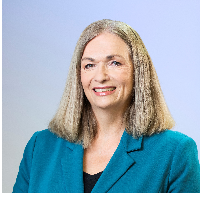
Nancy Arthur
Nanc Arthur, Professor and Dean Research for UniSA Business, University of South Australia and Professor Emeritus, University of Calgary/ Nancy Arthur, professeure et doyenne de la recherche à la UniSA Business (Université d’Australie-Méridionale) et professeure émérite à l’Université de Calgary ,
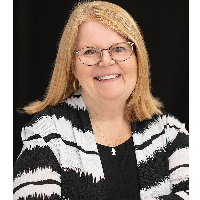
Roberta Borgen (Neault)
Life Strategies, Founder and President
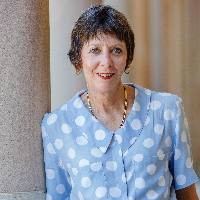
Mary McMahon
The University of Queensland, Honorary Associate Professor/ Université du Queensland, professeure agrégée honoraire,
 Sunday January 28, 2024 13:00
Sunday January 28, 2024 13:00Pre-registration required.
Explore the historic and contemporary relationship between Indigenous and non-Indigenous peoples in Canada through the Indigenous Blanket Exercise. It is an interactive learning experience that builds awareness and understanding of our shared history by having participants literally walk through situations that include pre-contact, treaty-making, colonization and resistance. Participants step onto blankets representing the land, and into the role of First Nations, Inuit and later Métis peoples. This is always an immensely powerful experience for Cannexus delegates and books up quickly.
 Monday January 29, 2024 08:00
Monday January 29, 2024 08:00 Monday January 29, 2024 7:00
Monday January 29, 2024 7:00 Monday January 29, 2024 7:30
Monday January 29, 2024 7:30 Monday January 29, 2024 7:30
Monday January 29, 2024 7:30 Monday January 29, 2024 8:00
Monday January 29, 2024 8:00First time at Cannexus? Then this session, designed to help maximize the conference experience, is for you! You’ll have the chance to get an overview of Cannexus, participate in an ice-breaker networking activity and meet other delegates. Vous participez au congrès Cannexus pour la première fois? Cette séance, conçue pour maximiser votre expérience, s’adresse à vous! C’est l’occasion d’obtenir une vue d’ensemble de Cannexus, participer à une activité de réseautage qui brise la glace et rencontrerez d’autres délégués.
 Monday January 29, 2024 09:00
Monday January 29, 2024 09:00 Monday January 29, 2024 09:45
Monday January 29, 2024 09:45 Monday January 29, 2024 10:30
Monday January 29, 2024 10:30Shaping the future requires experiential mindsets and DEI approaches. While mapping Canada's career development sector, Challenge Factory used creative, human-centric tools to help us first define the boundaries of the field. Only then could we accurately and feasibly map it. From the vital role of trust to using personas, join us to discover both key findings and innovative research methodologies./ Pour façonner l’avenir, il faut des approches axées sur l’expérience et la diversité, l’équité et l’inclusion. En cartographiant le secteur du développement de carrière au Canada, Challenge Factory a utilisé des outils créatifs et centrés sur l’humain pour nous aider à délimiter les frontières du domaine. C’est la seule façon de le cartographier de manière précise et réalisable. Du rôle vital de la confiance à l’utilisation des personas, soyez des nôtres pour découvrir à la fois des résultats clés et des méthodologies de recherche innovantes.
Learning Outcomes/ Résultats d’apprentissage:
Review highlights from our project mapping the career development sector/ Examiner les points forts de notre projet de cartographie du secteur du développement de carrière
Explore use and impact cases based on key project findings/ Explorer les cas d’utilisation et d’incidence en fonction des principaux résultats du projet
Examine innovative research methodologies to analyze impossibly large datasets/ Examiner des méthodologies de recherche innovantes pour analyser des ensembles de données extrêmement volumineux
Area of Interest / Domaine d'intérêt: Application of Current Research, Theory & Methodology/ Application de la recherche, de la théorie et de la méthodologie actuelles
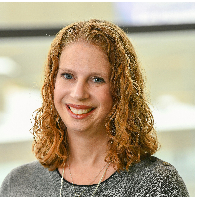
Lisa Taylor
Challenge Factory, President, Founder/ Président, fondatrice

Taryn Blanchard
Challenge Factory, Head of Research/ Responsable de la recherche
Main Stage Session Partner – Partenaire séance principale

 Monday January 29, 2024 10:30
Monday January 29, 2024 10:30In this session, hear from various perspectives (including Metis, First Nations and Inuit) about what is needed for their learners. Presenters will share ideas and best practices for recruiting, supporting and placing Indigenous learners. Participants will receive feedback on how they can raise support levels for Indigenous learners.
Learning Outcomes:
How to better support Indigenous learners on their career journey
How to better communicate, recruit and place Indigenous learners
Hear ideas and best practices and stories of what's working
Area of Interest: Indigenous Career Development

Darian Kovacs
Jelly Academy, Partner
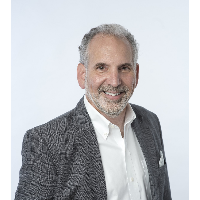
John DeGiacomo
Anishinabek Employment and Training Services, Executive Director
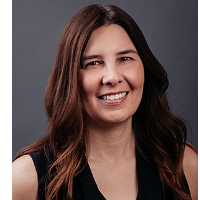
Lisa Savill
Rupertsland Institute, Director – Métis Endowments and Post-Secondary Initiatives
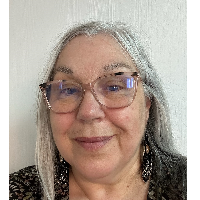
Dorothy Pye Johnson
NunatuKavut Community Council, Director of Employment & Skills Development and Special Advisor to the Office of the Presiden
 Monday January 29, 2024 10:30
Monday January 29, 2024 10:30In November 2021, Manitoba Institute of Trades and Technology (MITT) Adult Learning Centres launched its first career development supports in the Adult Basic Education program. Since inception, career conversations have been critical to the student experience. Career has moved Adult Basic Education from just a mature high school diploma, to a world of opportunities and recognition of the wisdom and potential of our learners.
Learning Outcomes:
Student success in Adult Basic Education
Career conversations reducing barriers to education
Adult Basic Education connects people with possibilities
Area of Interest: Adult Education and Career Development
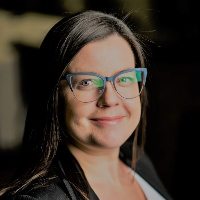
Meghan Lavallee
Manitoba Institute of Trades and Technology, Director, Career and Student Engagement
 Monday January 29, 2024 10:30
Monday January 29, 2024 10:30During uncertain times, clients may walk into sessions with their anxiety triggering the practitioner's own unconscious conflicts. This trigger can lead us questioning our competencies/experiencing burnout. We will explore techniques to address those clients who may be paralyzed by anxiety, thereby procrastinating career planning, struggling with job search actions and/or disengaging with career counselling/advising services.
Learning Outcomes:
Understanding routine stress/career anxiety vs Generalized Anxiety Disorder
Integrating strength-based micro-interventions for job search skills development
Modifying action plans to foster clients' successes/well-being
Area of Interest: Effective Career Counselling/Coaching Techniques

Sonny Wong
Toronto Metropolitan University, Registered Psychotherapist
 Monday January 29, 2024 10:30
Monday January 29, 2024 10:30The resume has long been, and still is, the primary document for anyone seeking to find or change employment. But resumes have changed and evolved. If your knowledge of resumes and your advice to clients are based on strategies and practices from 10, five or even two years ago, it's time to update your expertise and learn what works today.
Learning Outcomes:
Understand today's trends; write for both human eyes and ATS
Write more concisely: highlight essentials, reduce clutter, increase impact
Gain fresh ideas for capturing and showcasing critical information
Area of Interest: Application of Current Research, Theory & Methodology
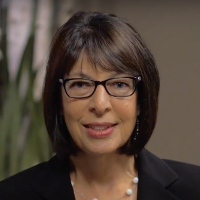
Louise Kursmark
Emerald Career Publishing, Author/Publisher/Master Resume Writer
 Monday January 29, 2024 10:30
Monday January 29, 2024 10:30The business case for a decarbonized economy rests on workers' and enterprises' successful transition from jobs expected to disappear to those that will emerge and grow. These changes will affect certain sectors disproportionately and will need to consider equity, diversity and inclusion. This session explores the key competencies required to support this transition and the opportunities produced for diverse jobseekers.
Learning Outcomes:
Understand how decarbonization affects skills and equity-deserving groups
Identify pathways to employment and entrepreneurship in new green economies
Explore the implications for training, upskilling and reskilling
Area of Interest: Adult Education and Career Development
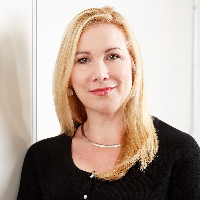
Wendy Cukier
Toronto Metropolitan University, Diversity Institute, Founder & Academic Director; Professor, Entrepreneurship & Strategy
 Monday January 29, 2024 10:30
Monday January 29, 2024 10:30Featuring insights from the 2023 Student Career Interests Report (a survey of over 16,000 post-secondary students), this presentation will provide the most authoritative look at today's students' mindsets. Learn how students' attitudes toward career development, employers and the world of work are evolving as well as their expectations of their schools in terms of career development support and work opportunities.
Learning Outcomes:
What today's students want from their careers and employers
How to make a stronger case student career development
How to best support students' career development
Area of Interest: Career Education Post-Secondary
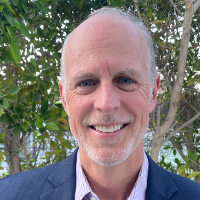
Graham Donald
Brainstorm Strategy Group Inc., Founder & President
 Monday January 29, 2024 10:30
Monday January 29, 2024 10:30A solid understanding of the military value proposition stems from clearly understanding the military experience. One key aspect of the military experience that many service providers overlook is recognizing that the military is a distinct culture within Canadian society. A roadmap to developing military cultural competency (MCC) is offered, beginning with self-assessment and building a military knowledge base, including practical recommendations.
Learning Outcomes:
Developing military cultural competence (MCC) counselling techniques
A roadmap to developing MCC
Aligning one’s counselling approach with clients who have military service
Area of Interest: Effective Career Counselling/Coaching Techniques
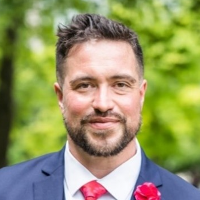
Jordan Camarda
Canadian Armed Forces Transition Group, National Manager, Military Transition Engagements & Partnerships
 Monday January 29, 2024 10:30
Monday January 29, 2024 10:30Vivre une impasse professionnelle peut engendrer une grande détresse. Cet atelier portera sur le potentiel de l’impasse pour la réflexion et la transformation de sa carrière à travers le désengagement. L'importance d’abandonner un objectif important mais inatteignable, les difficultés y étant associées et la manière dont les professionnels de carrière peuvent aider leurs clients à se désengager sainement seront abordés.
Résultats d'apprentissage:
Définir les différentes facettes du désengagement des objectifs
Découvrir ce nouveau domaine de recherche en contexte de carrière
Appliquer ces connaissances dans sa pratique professionnelle
Domaine d'intérêt: Application des recherches, théories et méthodologie actuelles

Geneviève Taylor
Université du Québec à Montréal, Professeure
 Monday January 29, 2024 11:40
Monday January 29, 2024 11:40 Monday January 29, 2024 12:00
Monday January 29, 2024 12:00 Monday January 29, 2024 13:00
Monday January 29, 2024 13:00Volatility. Uncertainty. Complexity. Ambiguity. Four words that have defined our lives over the past few years. Now, emerging from chaos, we face yet another challenge – navigating a fast-approaching future of work, an always-on "new abnormal" characterized by hybrid work, persistent technological disruption, and constantly shifting behaviours and expectation Today’s organizations must compress their five-year plans to two years (or less) to thrive in tomorrow's fast-paced world. In an age where everything that can be automated will be, it's imperative that people change before it's too late. To meet this challenge, attendees of this dynamic session require a bold new approach to navigating constant change; they must lean into an array of uniquely human qualities – such as attunement, (true) resilience and creativity – that are difficult, if not impossible, to disrupt. The future of work belongs to those who can change before change is required./ Volatilité. Incertitude. La complexité. Ambiguïté. Quatre mots qui ont défini nos vies au cours des dernières années. Aujourd’hui, émergeant du chaos, nous faisons face à un autre défi : naviguer dans un avenir du travail qui se rapproche rapidement, un « nouvel anormal » toujours en mouvement, que caractérisent un travail hybride, une perturbation technologique persistante et des comportements et des attentes en constante évolution. Les organisations doivent réduire aujourd’hui leurs plans de cinq à deux ans (ou moins) pour prospérer dans le monde en constante évolution de demain. À une époque où tout ce qui peut être automatisé le sera, il est impératif que les gens changent avant qu’il ne soit trop tard. Pour relever ce défi, les participants à cette session dynamique doivent avoir une nouvelle approche audacieuse pour naviguer dans le changement constant; ils doivent s’appuyer sur un ensemble de qualités humaines uniques – l’écoute, la (véritable) résilience et la créativité – qui sont difficiles, voire impossibles, à perturber. L’avenir du travail appartient à ceux qui peuvent changer avant que le changement ne s’impose.

Hamza Khan
Future of Work and People-first Leadership Expert, Bestselling Author/ Expert de l’avenir du travail et du leadership axé sur l’être humain, auteur de best-sellers
 January 29, 2024 14:15
January 29, 2024 14:15How can scholarship providers, community organizations and post-secondary institutions collaborate to improve outcomes for equity-deserving students? RBC Foundation recently released the first comprehensive review of scholarships in Canada in over 20 years. This session will unpack findings from the report with a panel of community leaders framed by a case study of the RBC Future Launch Scholarship for Black Youth. / Comment les fournisseurs de bourses, les organismes communautaires et les établissements d’enseignement postsecondaire peuvent-ils collaborer pour améliorer les résultats des étudiants en quête d’équité? La Fondation RBC A récemment publié la première revue complète des bourses d’études au Canada depuis plus de 20 ans. Durant cette séance, les conclusions du rapport seront analysées par un groupe de chefs communautaires, dans le cadre d’une étude de cas de la Bourse d’études Objectif avenir RBC pour jeunes Noirs.
Learning outcome / Résultats d’apprentissage :
How partnering across sectors in scholarship provision advances equity / Comment les partenariats intersectoriels en matière de bourses d’études favorisent l’équité
Understanding barriers youth face in accessing scholarships in Canada / Comprendre les obstacles auxquels les jeunes sont confrontés dans l’accès aux bourses d’études au Canada
How data/examples from RBC’s report can inform future programming / Comment les données et exemples du rapport de la RBC peuvent éclairer les futurs programmes
Area of interest / Domaine d'intérêt : Career Development for Youth Outside of School / Développement de carrière chez les jeunes en dehors de l’école

Kate Gatto
RBC, Senior Manager, Social Impact & Innovation / première directrice, Innovation et impact sociaux, RBC

Farahnaaz Kanji
RBC, Director, Youth Strategy / Directrice générale, Innovation et stratégie jeunesse, RBC
Learning Advancement Partner / Partenaire – Avancement l’apprentissage
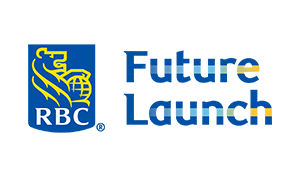

Sagal Ismail
Centre for Resilience and Social Development

Bibiana Valencia

Traci Spour-Lafrance
Ottawa Community Housing Foundation
 Monday January 29, 2024 14:15
Monday January 29, 2024 14:15Looking forward to 2040, what might be the role of career developers? Will “careers” as they are currently conceptualized exist in the same way, or how might they evolve given current macro-level changes affecting jobs and the way we work? Learn about newly released research exploring the future of career development.
Learning Outcomes:
An understanding of the macro factors redefining the changing workplace and career paths
How these changes will affect the future role of career developers
What career-oriented services and supports people will need in the future and how current services may adapt
Area of Interest: Future of Work and the Workplace
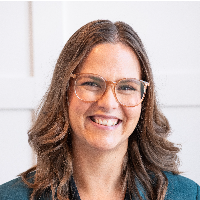
Jessica Thornton
Creative Futures Studio , Co-President
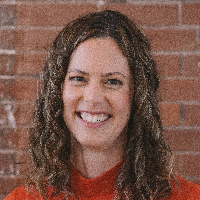
Heather Russek
Co-President , Creative Futures Studio
 Monday January 29, 2024 14:15
Monday January 29, 2024 14:15This presentation will review the collaborative and consultative process that has culminated in the development of a CERIC-funded teaching toolkit for inspiring and nurturing career-related learning with students in grades 4-6. Participants will explore the adaptability of the toolkit and learn about the breadth and depth of exciting ways to inspire students in their lives, learning and future work.
Learning Outcomes:
Understand the important contributions from community that support foundational career-related learning
Investigate foundational and transferable skills being developed in Grades 4-6
Explore the teaching toolkit content and review activities and resources
Area of Interest: Career Education K-12 Students
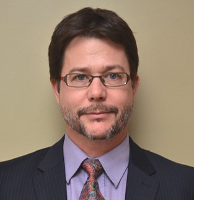
Stefan Merchant
Queen's University, Assistant Professor (Adjunct)
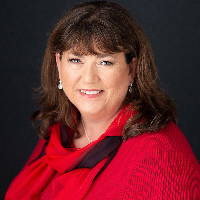
Lorraine Godden
Carleton University, Instructor II
 Monday January 29, 2024 14:15
Monday January 29, 2024 14:15Policy responses following economic shocks like recessions typically focus on short-term solutions, but the long-term effects on youth are pronounced. Young people land lower-quality work with lesser pay. This leads to labour market scarring, which has lasting impacts on a person’s earnings and career opportunities over time. High youth unemployment during a recession risks the well-being and social inclusion of that generation. Young people with lower levels of education, women and racialized youth suffer even larger losses of earnings during times of economic uncertainty. From health impacts to decreased lifetime earnings, this session will explore how deep the issue goes and how policy-makers can take action to reduce long-term negative effects on youth.
Learning Outcomes:
Identify key risks of labour market scarring on youth following recessions
Learn about gaps in existing policy responses
Explore solutions to mitigate the impacts of scarring on youth over time
Area of Interest: Career Development for Youth Outside of School

Lisa Lalande
Century Initiative, CEO
 Monday January 29, 2024 14:15
Monday January 29, 2024 14:15Faculty champions offer a unique opportunity to reach marginalized students and build career efficacy in the classroom. Discover practical tools to take faculty from reluctant to empowered career allies. Experience an innovative tool that resonates with both faculty and students called the Challenge mindset.
Learning Outcomes:
Integrate career development in the classroom, especially for marginalized students
Support faculty in understanding the value of career development
Discover successful case studies featuring classroom presentations and conferences
Area of Interest: Career Education Post-Secondary

Nicola Edwards
University of Guelph, Career Advisor

JP Michel
SparkPath, Founder
 Monday January 29, 2024 14:15
Monday January 29, 2024 14:15What are the roles of wellness, career development and community for transitioning into careers in tech? We will explore the role of career development and well-being in charting a meaningful career switch into the booming Canadian tech industry, with a special focus on supporting minority groups (Indigenous and Black professionals, women, 2SLGBTQI+, immigrants and other equity-deserving groups) in tech.
Learning Outcomes:
Understand the significance of wellness in a tech career
Understand the significance of centring underrepresented groups in tech
Learn about support systems that foster belonging in tech education
Area of Interest: Adult Education and Career Development

Sommer Harris
British Columbia Institute of Technology, Strategic Program and Industry Lead at the Tech Collider

Dinuka Gunaratne
Northeastern University, Director of Career Development and Experiential Learning

Victoria Williams
Northeastern University Vancouver, Wellness Program Specialist

Ethan Selinger
Northeastern University, Associate Co-op Faculty & Assistant Director of MS Align Career Advising
 Monday January 29, 2024 14:15
Monday January 29, 2024 14:15In this session, a panel of experts will discuss findings from the Guided Pathways National Skills for Success (SFS) training project including the piloting of the new assessment tool for the social-emotional skills components of the SFS model (Adaptability, Collaboration, Communication and Problem Solving). The panel will examine the impact of integrating the model in everyday career development practitioner practice.
Learning Outcomes:
Understand the value of integrating the SFS model into employment services
Learn the value of assessing skills for matching employment goals
See how data support a skills-focused approach in career development
Area of Interest: Application of Current Research, Theory & Methodology

Tamara Jorgic
Alberta Workforce Essential Skills Society (AWES), Director of Projects

Cindy Messaros
AWES, Executive Director

Shawn de Raaf
Social Research and Demonstration Corporation (SRDC), Research Director

Richard Roberts
RAD Science, Co-Founder and Chief Scientist

Micah Myers
RAD Science, Co-Founder and Chief of Operations
 Monday January 29, 2024 14:15
Monday January 29, 2024 14:15Many clients experience employment services as a "spin cycle," where they receive services, try unsuccessfully to enter the workforce, and return for more services. Building on research being conducted by the Canadian Career Development Foundation with both clients and service providers, this session presents up-to-date information on clients' needs, gaps in services, and practice/policy suggestions to end the spin cycle.
Learning Outcomes:
Understanding common needs of clients who repeatedly access employment services
Understanding major gaps in employment services for these clients
Identifying ways to improve employment services for these clients
Area of Interest: Employment/Training Programs (Community, Government, Industry)

Jose Domene
University of Calgary, Professor

Trina Stanford
Canadian Career Development Foundation, Project Associate
 Monday January 29, 2024 14:15
Monday January 29, 2024 14:15Ontario is undergoing transition to Integrated Employment Services (IES). First Work has conducted over three years of research and monitoring of this system transformation, taking in learnings from employment service providers, service system managers and government on the impact of this systems change. First Work will share insights from Ontario and other Canadian jurisdictions as well as best practices for improved transition.
Learning Outcomes:
Understand Ontario's vision for this transformation
Understand the changes affecting clients and employment service providers
Understand other Canadian jurisdictions' lessons learned
Area of Interest: Workforce Planning & Development

Akosua Alagaratnam
First Work, Executive Director

Karen Wilson
EEC, Executive Director
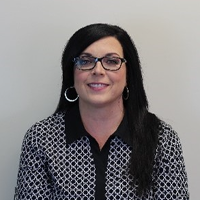
Deanna Villella
Job Gym, a division of the John Howard Society of Niagara, Senior Manager
 Monday January 29, 2024 15:15
Monday January 29, 2024 15:15 Monday January 29, 2024 15:45
Monday January 29, 2024 15:45Self-awareness is an essential life skill for crafting our life/career journeys. It can lead to greater self-knowledge and self-efficacy. But gaps in awareness can make it challenging to know who we really are and how others perceive us. How can we equip people to practise positive self-reflection and to receive positive feedback from others to increase their self-awareness?/ La conscience de soi est une compétence de vie essentielle pour construire notre parcours de vie et de carrière. Elle peut conduire à une meilleure connaissance de soi et à un meilleur sentiment d’efficacité personnelle. Toutefois, des lacunes dans la prise de conscience peuvent rendre difficile la connaissance de ce que nous sommes vraiment et de la façon dont les autres nous perçoivent. Comment donner aux gens les moyens de pratiquer une autoréflexion positive et de recevoir des commentaires positifs de la part des autres afin d’améliorer leur conscience de soi?
Learning Outcomes/ Résultats d'apprentissage:
Explore how self-awareness is a necessary precursor to life/career development/ Explorer comment la conscience de soi est indispensable au développement de la vie personnelle et de la carrière
Identity reasons why many people struggle with self-awareness/ Identifier les raisons identitaires pour lesquelles de nombreuses personnes ont du mal à bien se connaître
Learn strategies to facilitate positive self-reflection and positive feedback from others/ Apprendre des stratégies pour faciliter l’autoréflexion positive et la réception de commentaires positifs de la part des autres
Area of Interest / Domaine d'intérêt: Effective Career Counselling/Coaching Techniques/ Techniques d’accompagnement et d’orientation professionnelle efficaces

Gray Poehnell
Ergon Communications, Life/Career Coach/ accompagnateur en développement personnel et en gestion et transition de carrière
 Monday January 29, 2024 15:45
Monday January 29, 2024 15:45Despite the growing number of diversity hiring plans implemented across various sectors, jobseekers still have concerns about facing bias during the hiring process. As a result, marginalized clients suffer from emotional weathering and trauma when facing hiring discrimination. In this session, the presenter will share the impact of workplace discrimination on mental health.
Learning Outcomes:
Understand hiring bias and its impact on jobseekers
Articulate the impact workplace discrimination has on mental health
Learn key terms regarding diversity, equity and inclusion
Area of Interest: Justice, Equity, Diversity and Inclusion

Lakeisha Mathews
NCDA/The University of Baltimore, Director, Career & Internship Center
 Monday January 29, 2024 15:45
Monday January 29, 2024 15:45There are many benefits to creating neuroinclusive workspaces, yet neurodivergent Canadians continue to face barriers to employment and career progression. This session will summarize key findings from a study conducted by The Conference Board on behalf of the Future Skills Centre on how to break down these barriers and improve career outcomes for neurodivergent workers.
Learning Outcomes:
Better understand what neurodiversity is and how it manifests in the workplace.
Identify the barriers that neurodivergent workers face and understand their implications for career success.
Acquire strategies for promoting the recruitment and retention of neurodivergent workers.
Area of Interest: Justice, Equity, Diversity and Inclusion

Dr. Jennifer Fane
The Conference Board of Canada, Senior Research Associate, Education & Skills
 Monday January 29, 2024 15:45
Monday January 29, 2024 15:45As technology and industry needs continue to evolve, the landscape of tomorrow's careers is rapidly changing. This session will examine the skills and training required for success in the future. First-time, immigrant and mature students within a vocational education system are an important part of the solution and it's time for new ideas.
Learning Outcomes:
Understanding of career colleges in Canada
Student outcomes – options for the future
New outlooks on education and career opportunities
Area of Interest: Career Education Post-Secondary

Michael Sangster
National Association of Career Colleges, Chief Executive Officer
 Monday January 29, 2024 15:45
Monday January 29, 2024 15:45For over 20 years, Julie Labrie, one of Canada's top recruitment leaders, has worked with HR leaders and jobseekers – connecting people to their dream jobs and building dream teams for organizations. In this session, Julie breaks down in tangible steps what each side will be looking for in 2024, and how to help both sides find their perfect match!
Learning Outcomes:
Help jobseekers understand exactly what prospective employers need today
Help employers go below the surface to identify dream candidates
Discover new matchmaking strategies that can produce win-win recruitment results
Area of Interest: Employee Recruitment & Engagement
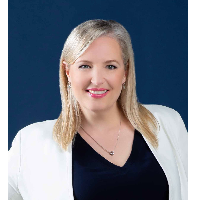
Julie Labrie
BlueSky Personnel Solutions, President
 Monday January 29, 2024 15:45
Monday January 29, 2024 15:45Career development helps people write their own life stories and be architects of their futures. As career development professionals, we help others do that. But what about us? Who shapes our field's policies, our learning and the story of our impact? Join this conversation to shape how our sector can write our own narrative and build our own future.
Learning Outcomes:
Examine the critical connection between practice, research and policy
Contribute to shaping the Career Development Professional Centre
Explore how our sector can take charge of our future
Area of Interest: Building the Profile and Sustainability of the Career Development Sector

Sareena Hopkins
CCDF, Executive Director
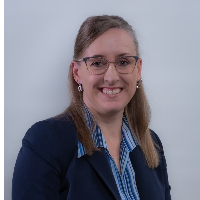
Deirdre Pickerell
Canadian Career Development Foundation, Program Director
 Monday January 29, 2024 15:45
Monday January 29, 2024 15:45Join Deborah Bromley as she shares findings from her recent master's work on women with disabilities (WWD) – an autoethnography addressing barriers to employment and advancement and how mentorship and entrepreneurship contributed to her ultimate success as a senior leader. This inspirational work serves as a model to help other WWD reach their true potential in work and life.
Learning Outcomes:
Gain valuable insight to support WWD in employment
Explore how evidence-based research can support bids
Learn how educational inquiry can help inform industry programming
Area of Interest: Supporting Clients with Disabilities
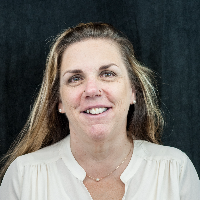
Deborah Bromley
ETHOS Career Management Group Ltd., President & CEO
 Monday January 29, 2024 15:45
Monday January 29, 2024 15:45Career development services need a paradigm shift to address the complexities of a rapidly evolving professional landscape. Based on work with international students and immigrants, this session explores how integrating the principles and competencies of entrepreneurship into career development curriculums can equip individuals with the agility needed to navigate uncertainty and thrive in diverse career opportunities.
Learning Outcomes:
Understand the disproportionate impact an uncertain world has on vulnerable groups in employment
Identify the benefits of an entrepreneurial mindset in career guidance
Practise tools for integrating an entrepreneurial mindset into career services
Area of Interest: Entrepreneurship & Self-Employment
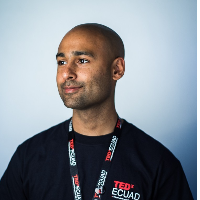
Scott Mallory
ISM Arts & Culture, Founder/Director

Tam Nguyen
Empurpose, Career Coach
 Monday January 29, 2024 15:45
Monday January 29, 2024 15:45In this interactive presentation, discover the science of heart coherence and its practical application in career development. Learn a comprehensive model incorporating heart coherence into career planning, providing practitioners with a powerful tool to enhance their effectiveness. Gain insights to optimize personal and professional growth, fostering resilience and success. Elevate your career development practice through the power of heart coherence.
Learning Outcomes:
Participate in a powerful heart coherence practice
Learn how connecting head and heart creates optimal outcomes
Learn to use heart coherence for personal and professional growth
Area of Interest: Effective Career Counselling/Coaching Techniques

Shirin Khamisa
Careers by Design, Founder & Practice Leader
 Monday January 29, 2024 17:00
Monday January 29, 2024 17:00Join us at the Welcome Reception to not only indulge in refreshments and connect with colleagues but also to celebrate the launch of three new CERIC publications and two reports.
Plus! Meet the Authors of CERIC’s new Practice Principles: Career Theories and Models at Work book: Nancy Arthur, Roberta Borgen and Mary McMahon. You’ll find the authors at a table in the main foyer. Stop by to chat - or have them sign your complimentary copy of the book, available to all delegates! / Rejoignez-nous à la réception de bienvenue pour non seulement savourer des rafraîchissements et nouer des liens avec vos collègues, mais aussi pour célébrer le lancement de trois nouvelles publications du CERIC et de deux rapports.
En plus ! Rencontrez les auteurs de la nouvelle publication du CERIC intitulée Principes de pratique : Career Theories and Models at Work du CERIC : Nancy Arthur, Roberta Borgen et Mary McMahon. Vous trouverez les auteurs à une table dans le foyer principal. Passez les voir pour bavarder - ou demandez-leur de signer votre exemplaire gratuit du livre, offert à tous les délégués !
 Tuesday January 30, 2024 7:00
Tuesday January 30, 2024 7:00 Tuesday January 30, 2024 7:30
Tuesday January 30, 2024 7:30 Tuesday January 30, 2024 7:30
Tuesday January 30, 2024 7:30 Tuesday January 30, 2024 9:00
Tuesday January 30, 2024 9:00 Tuesday January 30, 2024 09:45
Tuesday January 30, 2024 09:45In spring 2023, the Career Development Professional Centre (CDPC) and Indigenous groups collaborated in piloting new training in career development. This session explores challenges faced by Indigenous communities in accessing relevant training that maintains a focus on community building, values and inclusion, and the learning that comes from collaboration. Panellists will share experiences in building partnerships and effective training programs that honour Indigenous communities./ Au printemps 2023, le Centre d’expertise en développement de carrière (CEDC) et des groupes autochtones ont collaboré à la mise à l’essai d’une nouvelle formation en développement de carrière. Cette séance explore les difficultés auxquelles doivent faire face les communautés autochtones lorsqu’il s’agit d’accéder à des formations pertinentes qui mettent l’accent sur le renforcement de la communauté, les valeurs et l’inclusion, ainsi que sur l’apprentissage qui découle de la collaboration. Les intervenants raconteront leurs expériences en matière de création de partenariats et de programmes de formation efficaces qui honorent les communautés autochtones.
Learning Outcomes/ Résultats d'apprentissage:
Understand some considerations to develop accessible training for Indigenous audiences/ Comprendre certains aspects à prendre en compte pour élaborer une formation accessible aux Autochtones
Foster inclusion and equitable access to knowledge for Indigenous learners/ Favoriser l’inclusion et l’accès équitable au savoir pour les apprenants autochtones
Support Indigenous capacity building for accessible, valuable and lifelong learning/ Soutenir le renforcement des capacités des Autochtones pour un apprentissage accessible, utile et tout au long de la vie
Area of Interest / Domaine d'intérêt: Indigenous Career Development/ Développement de carrière chez les Autochtones

Rebecca McCarthy
Canadian Career Development Foundation/ Fondation canadienne pour le développement de carrière, Project Associate/ associée de projet
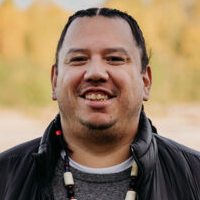
Jorden Squires
K5T, Employment Developer
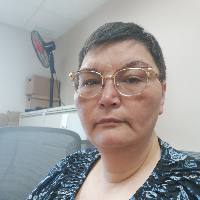
Donna Sabourin
Government of Nunavut/ gouvernement du Nunavut, Regional Manager Career Development/ directrice régionale du perfectionnement professionnel
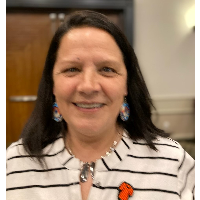
Polly Bobiwash
Anishinabek Nation, Director of Labour Market Development/ Directrice du développement du marché du travail

Adigwil (George) Lesner
K5T Chef
 Tuesday January 30, 2024 09:45
Tuesday January 30, 2024 09:45This session will showcase Skills for Change's Youth Climate Action Initiative, whichempowers GTA youth to address climate change and create sustainable communities. Throughcommunity climate action projects, participants lead initiatives including outdoor clubs andcommunity engagement efforts. The session will highlight outcomes, impact, and participantinsights, inspiring attendees to empower youth and foster sustainable change in their owncommunities.
Learning Outcomes:
Increased Community Engagement and Action
Strengthened Understanding and Awareness of creating Sustainable Communities
Empowerment for Youth in the Community
Area of Interest: Advocacy & Social Justice

Surranna Sandy
Skills for Change, CEO

Nya Lazarus-Munnick
Supervisor, Sustainable Communities
 Tuesday January 30, 2024 09:45
Tuesday January 30, 2024 09:45Referrals are one way we can advocate for our clients. How we do those handoffs matters – they have the potential to be positive and compensatory experiences for our clients. In this session, we explore a process for making trauma-informed referrals that includes learning more about our referrals and strategies we can use when our referral partners are not trauma-informed.
Learning Outcomes:
How to make trauma-informed referrals
How to find out more about your referral sources
How to advocate for change in your communities
Area of Interest: Advocacy & Social Justice

Catherine Hajnal
Life Fundamentals Education & Coaching, Grief and Trauma Educator
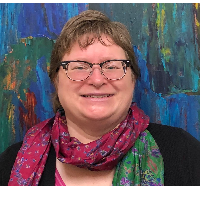
Seanna Quressette
Douglas College, Faculty of Applied Community Studies, Co-ordinator, Continuing Education
 Tuesday January 30, 2024 09:45
Tuesday January 30, 2024 09:45Micro-credentials and digital badges are a fast-growing trend to develop and recognize people's skills and passions and connect them to jobs and careers. As a career practitioner, find out how you can harness the power of this recognition technology for your clients – and for your own career. Earn a badge for your professional learning in this session!
Learning Outcomes:
Explain the what and why of micro-credentials and digital badges
Describe how badges and micro-credentials can help your clients
Describe how badges and micro-credentials can help advance your career
Area of Interest: New Technology & Tools for Career Professionals

Donald Presant
Learning Agents, President
 Tuesday January 30, 2024 09:45
Tuesday January 30, 2024 09:45A global economy requires job mobility. When Fortune 500 companies relocate employees to Canada, their spouses need help finding appropriate jobs. This session will be of interest to anyone wanting to learn more about how to use practical tools and tactics for coaching educated and experienced newcomers to overcome employment barriers in Canada.
Learning Outcomes:
Needs of educated/experienced newcomers
Challenges they face
Proven strategies and tactics for their successful job search
Area of Interest: Global Perspectives on Career Development Research & Practice

George Dutch
JobJoy, Founder/Principal
 Tuesday January 30, 2024 09:45
Tuesday January 30, 2024 09:45In the context of AI, automation, upskilling and the importance of skills, the question remains: What skills are needed for jobs? Magnet and partners have been exploring the application of advanced modelling and visualizations to create tools that can pinpoint critical skills. Join us for a grounded discussion that delves into how these innovative applications can empower career development pathways .
Learning Outcomes:
Learn about innovative skills and data methodology in development
Explore how labour market information (LMI) can identify core, related and emerging skills
Delve into key insights on the next frontier of LMI
Area of Interest: Labour Market Information
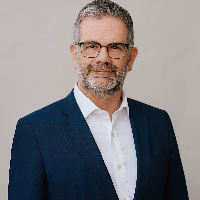
Mark Patterson
Magnet, Executive Director
 Tuesday January 30, 2024 09:45
Tuesday January 30, 2024 09:45Small and medium enterprises (SMEs) are key for economic and employment growth nationally. SMEs rely on informal networks to source employees and can miss opportunities presented by diverse talent pools. This presentation will review recent data on labour and skills trends in SMEs across sectors and discuss best practices for meeting SME needs and tapping into diverse talent pools and markets.
Learning Outcomes:
Understand the changing shape and demands of SMEs in Canada
Identifying barriers SMEs face in accessing talent
Exploring best practices for diverse jobseekers accessing employment opportunities
Area of Interest: Employment/Training Programs (Community, Government, Industry)

Tania Sabat
Université de Montréal, Full Professor and BMO Chair in Diversity and Governance

Louie Di Palma
Ontario Chamber of Commerce, Vice-President, SME Programs

Katlynn Sverko
Diversity Institute, Toronto Metropolitan University, Senior Program Manager, Future Skills
 Tuesday January 30, 2024 09:45
Tuesday January 30, 2024 09:45Women in Resource Development Corp. has been blazing trails for decades, helping thousands of women and girls connect with trades and technology. Despite the success, many women were stuck until responsive programs and supports recently became available including In Motion & Momentum+, Digital Reboot and Women and Gender Equality Canada (WAGE). This session explores the importance of women-focused career development and shares strategies for success.
Learning Outcomes:
Explore the importance of social /emotional learning on career growth
Understand how participant-centred, strength-based approaches support individual and community self-determination
Learn to integrate similar approaches for individual and organizational success
Area of Interest: Justice, Equity, Diversity and Inclusion
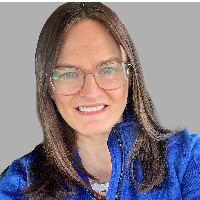
Michelle Blundon
Women in Resource Development Corporation , Director, Career Development

Cheri Butt
Women in Resource Development Corporation, CEO
 January 30, 2024 09:45
January 30, 2024 09:45Tiré d’une recherche concernant le développement de carrière au cours de la pandémie de COVID-19, cet atelier en présentera les résultats probants : l’évolution de la nature et la demande des services de counseling; les effets sur le sens au travail et sur les choix de carrière ; les ressources mobilisées par la clientèle pour faire face à l’événement.
Résultats d'apprentissage:
La notion d’événement significatif et ses effets sur la carrière
Les caractéristiques et les facteurs d’influence du sens du et au travail
Les ressources pour faire face à un choc de carrière
Domaine d' intérêtt: Application des recherches, théories et méthodologie actuelles

Elodie Chevallier
UQAM, Chercheuse

Réginald Savard
UQUAM, Professeur

Pawel Zaniewski
UQUAM, M.sc., est c.o. et doctorant en education
 Tuesday, January 30, 2024 10:55
Tuesday, January 30, 2024 10:55 January 30, 2024 11:15
January 30, 2024 11:15This session presents the findings of the first cohort a six-year study about the employment outcomes and socio-economic status of young participants of RBC Future Launch-funded programs. It will offer insights into young Canadian’s current reality and what the future of work might look like from their perspective, featuring an engaging youth panel. / Cette séance présente les résultats de la première cohorte d’une étude de six ans sur les perspectives d’emploi et le statut socioéconomique des jeunes participants aux programmes financés par Objectif avenir RBC. Elle offrira un aperçu de la réalité actuelle des jeunes Canadiens et de ce à quoi l’avenir du travail pourrait ressembler de leur point de vue, grâce à un groupe de jeunes passionnants.
Learning outcomes / Résultats d’apprentissage :
Insight into young Canadians’ current realities (focus on employment) / Aperçu de la réalité actuelle des jeunes Canadiens (accent sur l’emploi)
Insight into the future of work from Canadian youth / Aperçu de l’avenir du travail selon les jeunes Canadiens
Recommendations for supporting youth in their career journeys / Recommandations pour soutenir les jeunes dans leur parcours de carrière
Area of Interest / Domaine d'intérêt : Career Development for Youth Outside of School / Développement de carrière chez les jeunes en dehors de l’école

Valentina Castillo Cifuentes
University of Waterloo, Research Manager, Youth & Innovation Project / Responsable de la recherche, Youth & Innovation Project, Université de Waterloo
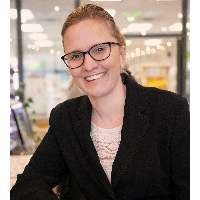
Ilona Dougherty
University of Waterloo, Managing Director, Youth & Innovation Project / Directrice générale, Youth & Innovation Project, Université de Waterloo
Learning Advancement Partner / Partenaire – Avancement l’apprentissage


Adam Nuraddeen
Centre for Resilience and Social Development , RBC Youth Panel

Graedy Ngabiro
Centre for Resilience and Social Development ,RBC Youth Panel

Emmanuel Antonin
Ottawa Community Housing Foundation , RBC Youth Panel
 Tuesday January 30, 2024 11:15
Tuesday January 30, 2024 11:15This session will examine the Phase 2 results of Future Skills Centre’s evaluation study of the Employability Skills Assessment Tool (ESAT). Recommendations and lessons learned to date will be presented along with anticipated Phase 3 research opportunities for Canadian training and employment service providers.
Learning Outcomes:
Understand how ESAT is being evaluated in the study
See the ESAT evaluation results as of December 2023
Be exposed to anticipated Phase 3 research opportunities
Area of Interest: Adult Education and Career Development

Randy Lindsay
Futureworx, CEO
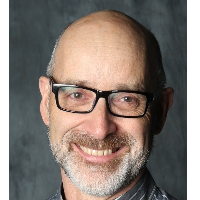
Paul Brinkhurst
Futureworx, Innovations Developer

Sihwa Kim
Blueprint-ADE, Associate
 Tuesday January 30, 2024 11:15
Tuesday January 30, 2024 11:15Articles and career advice are fraught with "do and don't" tips. While this well-meaning advice is meant to help navigate careers, often the advice associated with "don't" sends confusing messages to our stakeholders. In this roundtable discussion, we will examine how to reframe our advice from a lens of justice, equity, diversity and inclusion.
Learning Outcomes:
Briefly review a justice, equity, diversity and inclusion framework
Examine potential pitfalls and best practices of career advice
Reframe messages with a lens of inclusivity
Area of Interest: Justice, Equity, Diversity and Inclusion

Lisa Bauman
Conestoga College, Professor, Career Development

Claudia Mellad
Conestoga College, Professor
 Tuesday January 30, 2024 11:15
Tuesday January 30, 2024 11:15A 2005 study identified numerous challenges faced by dual-career couples as they juggled successful careers with home and family responsibilities. In 2023, this study was extended with more diverse dual-career couples and the added complication of the COVID-19 pandemic as a backdrop. Join the researchers as they share findings and explore important implications for career development practice.
Learning Outcomes:
Understand the career development needs of dual-career couples
Explore strategies dual-career couples use to maximize career success
Respond to the unique challenges faced by dual-career couples
Area of Interest: Application of Current Research, Theory & Methodology

Roberta Borgen (Neault)
Life Strategies, Founder and President

Deirdre Pickerell
Canadian Career Development Foundation, Program Director
 Tuesday January 30, 2024 11:15
Tuesday January 30, 2024 11:15Embark on a transformative journey of career management as embedded practice. Like mindfulness, meditation, yoga and scientific experimentation, it cultivates self-awareness, iteration and making conscious choices. Discover scalable examples in experiential learning, tech stewardship, curriculum, elder mentorship – advocating for lifelong career practice, which everyone from students to seniors can use to foster calm amid chaos, navigate a lifetime of transitions and finish strong.
Learning Outcomes:
How career management can be conceived of as a practice
Learn examples of embedding career management into asynchronous/synchronous programs
Gain perspective of career management practices across the lifespan
Area of Interest: Effective Career Counselling/Coaching Techniques
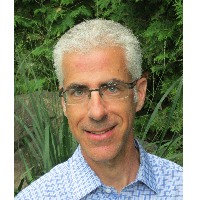
Mark Franklin
CareerCycles & University of Toronto, Practice Leader and Adjunct Professor

Michael Stebleton
University of Minnesota, Professor
 Tuesday January 30, 2024 11:15
Tuesday January 30, 2024 11:15Many disability-serving employment programs are designed for adults, who have different needs than youth. Youth with disabilities are in a major life transition – they're exploring themselves, building independence and learning what it means to establish a life in community. Learn about a support model that helps service providers serve youth as they pursue employment through this dynamic transition!
Learning Outcomes:
Identify the employment-related support needs of youth with disabilities
Evaluate an employment program's capacity to meet youth-specific needs
Apply the model to new and existing employment programs
Area of Interest: Supporting Clients with Disabilities
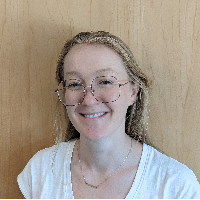
Sarah Molder
CanAssist at the University of Victoria, Provincial Employment Strategy Project Lead

Ameera Azam
CanAssist at the University of Victoria, Research and Engagement Facilitator

Emily Flegel
CanAssist at the University of Victoria, Provincial Employment Strategy Project Analyst
 Tuesday January 30, 2024 11:15
Tuesday January 30, 2024 11:15Canada's tourism sector faces severe labour challenges. The rapidly changing labour market creates inequities and demands innovative workforce solutions. Emerging tech-enabled tools can help tourism workforce stakeholders meet the unmet demand for workers. Learn from workforce development practitioners how real-time job demand data can better support employers, jobseekers and the broader workforce ecosystem to maintain competitiveness.
Learning Outcomes:
Understand how real-time, job demand data is enabling employment supports
Learn how these insights support sector-specific workforce strategies
Take away practical examples of ecosystem collaboration
Area of Interest: Labour Market Information

Adam Morrison
OTEC, President and CEO

Austin Hracs
Vicinity Jobs, Senior Vice-President of Research and Partnerships
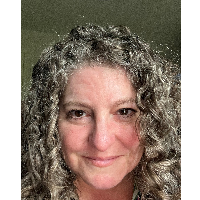
Mandie Abrams
Hospitality Workers Training Centre, Executive Director
 Tuesday January 30, 2024 11:15
Tuesday January 30, 2024 11:15Staring mortality in the face can shift one's priorities. These shifts may be revolutionary or a quiet re-entrenchment into one's core values. Amid new workplace expectations, mental health crises, rising cost of living ... where have you landed? Participants will reflect on their personal post-pandemic shifts and discuss ways of engaging clients regarding its impact on their own career development.
Learning Outcomes:
Learn impact of the pandemic on the self
How to determine implications
Learn how to integrate this shift into career counselling
Area of Interest: Self-Care for Career Professionals

Yvonne Rodney
Inner Change Consulting, President
 Tuesday January 30, 2024 11:15
Tuesday January 30, 2024 11:15Unlock the untapped potential of ChatGPT and AI tools to double your impact on clients and become the greatest version of yourself. Discover a framework to personalize AI to your needs and integrate new tools into your practice. Explore real-world applications, practical tips and mistakes to avoid. After the session, you'll be inspired and ready to experiment further.
Learning Outcomes:
Discover a framework to integrate new AI tools
Articulate the value and drawbacks of AI tools
Review a series of practical examples relevant for career professionals
Area of Interest: New Technology & Tools for Career Professionals

JP Michel
SparkPath, Founder

Angela Hoyt
Evolution Group Inc., CEO

Sarah Delicate
BBMD, Director
 Tuesday, January 30, 2024 12:15
Tuesday, January 30, 2024 12:15 Tuesday January 30, 2024 12:30
Tuesday January 30, 2024 12:30Every year, hundreds – even thousands – of people have the opportunity to attend one of Chantal Petitclerc’s talks .
Chantal speaks about the stages of her life, the circumstances that brought her to become a wheelchair track and field athlete, her major victories and her minor disappointments. Without preaching, she uses her own story to illustrate the importance of perseverance, ambitious goals, vision and, especially, dreams. / Chaque année, des centaines, voire des milliers de personnes ont la chance d’assister à l’une des conférences de Chantal Petitclerc. Chantal évoque les étapes de sa vie, les circonstances qui l’ont amenée à devenir athlète en fauteuil roulant, ses grandes victoires et ses petites déceptions. Sans sermonner, elle utilise sa propre histoire pour illustrer l’importance de persévérer, d’établir une vision et des objectifs ambitieux et, surtout, de poursuivre ses rêves.

Chantal Petitclerc
Paralympic Champion | World Record Holde / Championne paralympique | Détentrice de records du monde
 Tuesday January 30, 2024 13:45
Tuesday January 30, 2024 13:45Pilots, self-assessments, quasi-experimental, randomized controlled trials‚ oh my! This session examines how developing, implementing and scaling a pre-employment intervention, In Motion & Momentum+, over nearly 10 years generated evidence that shows positive outcomes from its self-determination approach and created many learnings for other developers wanting to scale their programs or practices. Come and explore the learnings and implications./ Projets pilotes, autoévaluations, quasi-expérimentations et essais contrôlés randomisés, oh la la!
Cette séance porte sur la façon dont l’élaboration, la mise en œuvre et l’extensibilité d’une intervention préalable à l’emploi, le programme En marche et en mouvement+, a pendant près de 10 ans produit des données probantes qui montrent les résultats positifs de son approche d’autodétermination et créé de nombreux apprentissages pour d’autres développeurs souhaitant étendre leurs programmes ou leurs pratiques. Venez explorer les apprentissages et les retombées.
Learning Outcomes/ Résultats d'apprentissage:
Understand how evaluation supports program development, learning, adaptation and scaling/ Comprendre comment l’évaluation soutient l’élaboration, l’apprentissage, l’adaptation et l’extensibilité des programmes
Explore how innovation drives development and evaluation methods/ Explorer comment l’innovation stimule les méthodes de perfectionnement et d’évaluation
Understand how self-determined approaches affect individuals with pre-employment needs/ Comprendre comment les approches autodéterminées ont une incidence sur les personnes ayant des besoins préalables à l’emploiArea of Interest / Domaine d'intérêt : Adult Education and Career Development/ Éducation des adultes et développement de carrière

Donnalee Bell
Canadian Career Development Foundation, Managing Director/ Fondation canadienne pour le développement de carrière, directrice générale,

Sandra Nkusi
Blueprint ADE, Manager/ Blueprint ADE, directrice, Manager
 Tuesday January 30, 2024 13:45
Tuesday January 30, 2024 13:45At every stage of one's life, there is a new set of challenges that arises. Learning the skills needed to overcome these challenges is crucial for progressing to the next level of one's chosen career path. For some, this progression includes the added challenge of mental health concerns. These issues present unique challenges to students, employees, jobseekers and retirees.
Learning Outcomes:
Gain skills to create an organized and supportive environment
Identify how job-related concerns intersect with mental health
Identify how positive work experiences affect well-being and success
Area of Interest: Change Management and Resilience

Carolyn Jones
CDJ Consulting, LLC, President/CEO
 Tuesday January 30, 2024 13:45
Tuesday January 30, 2024 13:45Career development is not just skills and certifications. To be successful in growth, it requires looking at the whole person. Mind, body, spirit, emotions – these all must grow together. Take any one away and growth will be skewed. This session will share lessons we learned taking Indigenous approaches to our work.
Learning Outcomes:
Awareness of holistic approaches to career development
Examples of practical strategies that can be used
The relationship between retention and holism
Area of Interest: Indigenous Career Development

Ken Sanderson
Teach For Canada – Gakinaamaage, Executive Director

Anikka Bolender
Teach for Canada, Professional Development Manager
 Tuesday January 30, 2024 13:45
Tuesday January 30, 2024 13:45Grant Collins shares international experiences and stories of successful programs and interventions that help get people back to work. Using an ability-focused lens, he demonstrates how small adjustments in our thinking and approaches to working with barriered jobseekers and people with disabilities can make a significant and measurable impact on employment outcomes.
Learning Outcomes:
Shift your assumptions about how to engage and motivate jobseekers
Building pathways for people that get them excited about work
International perspectives of employment service delivery
Area of Interest: Global Perspectives on Career Development Research & Practice

Shanthi Rajaratnam
Fedcap Canada, Vice President
 Tuesday January 30, 2024 13:45
Tuesday January 30, 2024 13:45We give feedback to clients on resumes, interview skills and so much more but it doesn't always lead to results. Join us for an interactive session to enhance your coaching skills. Use feedback in a safe, collaborative space to allow clients to reflect and gain greater self-awareness and agency over how and what they need to learn to achieve results.
Learning Outcomes:
Recognize how traditional methods of giving feedback can be disempowering
Learn a collaborative coaching feedback approach that gives clients agency
Understand how to build an atmosphere of safety and trust
Area of Interest: Effective Career Counselling/Coaching Techniques
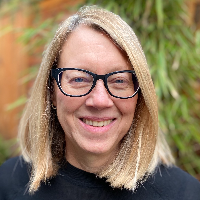
Karen Begemann
Douglas College, Instructor/Career Consultant
 Tuesday January 30, 2024 13:45
Tuesday January 30, 2024 13:45Connect, reflect and engage in a safe & structured, interactive career conversation experience. Join this enlightening and unique event to meet others, gain clarity, explore possibilities and walk away with your personalized clarification statement and unexpected delight. Embedded into career development curriculum at University of Toronto and many more post-secondaries, gamified Who You Are Matters! Promotes career growth and team (re)building.
Learning Outcomes:
Gain personal career clarity and insights through narrative reflection
Experience the career development power of storytelling & story listening relative to test-and-tell
Learn how career management skills can be learned peer-to-peer and enjoyably
Area of Interest: Future of Work and the Workplace

Mark Franklin
CareerCycles & University of Toronto, Practice Leader and Adjunct Professor

Leigh Anne Saxe
Self Employes, Inner Leader Coach/Life Coach
Special Event Partner – Partnaire - événment spéciale
 Tuesday January 30, 2024 13:45
Tuesday January 30, 2024 13:45We all want the best for our clients, don't we? And I imagine most of us would say that we work hard to empower them. What if I told you that most of us actually enable our clients – and don't empower them? So, are you an enabler or an empowerer? Come and find out!
Learning Outcomes:
To understand the difference between enabling and empowering
To become aware of enabling behaviour
To develop strategies to empower and not enable
Area of Interest: Effective Career Counselling/Coaching Techniques
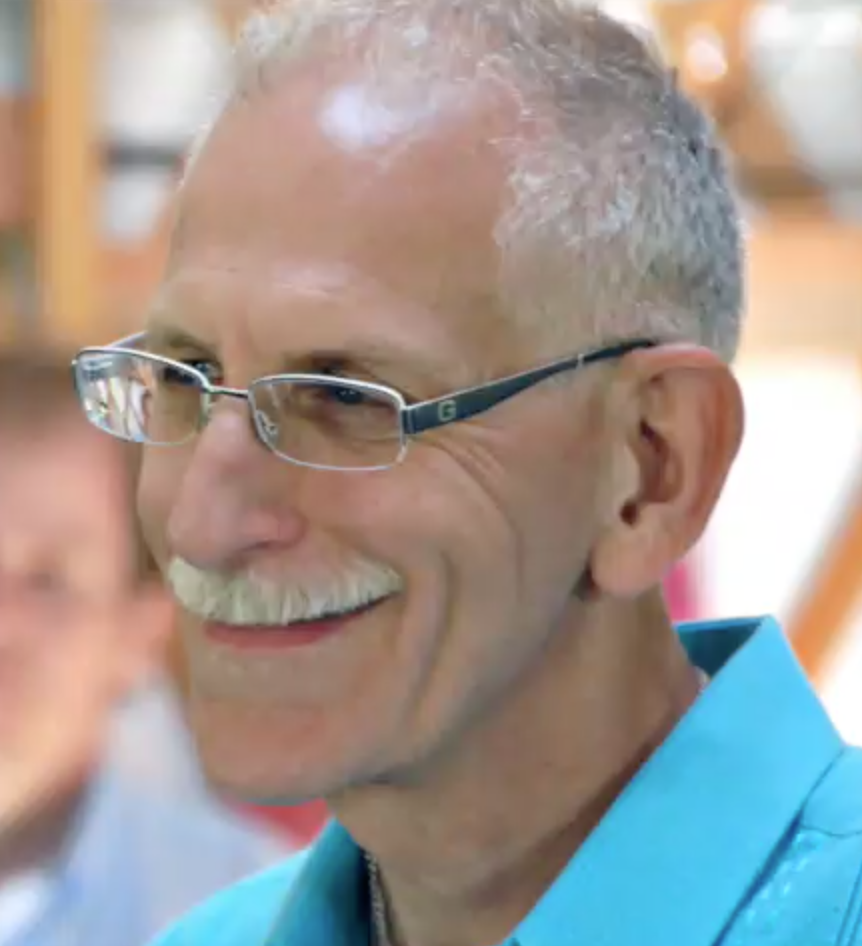
Herky Cutler
herkycutler.com, President/CEO
 Tuesday January 30, 2024 13:45
Tuesday January 30, 2024 13:45Today's jobseekers, whether new graduates or executives (and everyone in between), must have a sharp LinkedIn headline and authentic narrative. It's critical for obtaining introductions, securing recommendations and advancing careers. LinkedIn cannot be an upload of a resume. Instead, strategic storytelling must compel a reader to engage. This program will provide the must-dos that will differentiate a LinkedIn profile.
Learning Outcomes:
Discover best approaches for creating genuine content that captures attention
Craft fresh, interesting details that do not mimic the resume
Learn key strategies for optimizing a LinkedIn site
Area of Interest: Career Education Post-Secondary

Jan Melnik
Emerald Career Publishing/University of South Florida/Absolute Advantage, Author/Program Director/Founder-Principal
 Tuesday January 30, 2024 13:45
Tuesday January 30, 2024 13:45Facing an aging workforce, the OWL program was developed to provide the most comprehensive suite of tools to support our clients with their needs. To date, this highly customized program has an employment success rate over 80%. Join us as we discuss the potential and adaptability of this hybrid program for a wider audience.
Learning Outcomes:
Supporting mature workers in their job search and success
Adapting programs to new technology and approaches
Increasing client engagement
Area of Interest: Mature Worker Career Development

Philip Cantrill
People Plus Consulting Limited, Chief Operating Officer

Nicole Garcia
OWL Project & Workshops, Facilitator

Omercan Duna
OWL Project & Workshops, Coordinator
 Tuesday, January 30, 2024 14:45
Tuesday, January 30, 2024 14:45 Tuesday January 30, 2024 15:15
Tuesday January 30, 2024 15:15The world of work is undergoing rapid change and turbulence due to global influences. There are many competing and conflicting narratives about trends for the provision of career development services. Along with being reactive to turbulence and trends, it is critical to be proactive in shaping policies and practices in ways that support people to navigate new ways of working. It is timely to consider how we might shape the future, through considering what has stood the test of time, what we are doing well and what we might want to keep or change. In this keynote presentation, Nancy Arthur will address some contemporary challenges and invite career development practitioners to consider core values that underpin business as (un)usual. / En raison d’influences mondiales, le monde du travail change rapidement et subit des turbulences. Les tendances de l’offre de services de développement de carrière se croisent et se contredisent. Il faut tenir compte des turbulences et des tendances et élaborer des politiques et des pratiques qui aideront le personnel à s’adapter aux nouvelles méthodes de travail. L’heure est venue de façonner l’avenir, en tenant compte de ce qui a résisté à l’épreuve du temps, de nos forces et de ce que nous voulons conserver ou changer. Dans cette allocution, Nancy Arthur abordera certains défis actuels et invitera les intervenants en développement de carrière à réfléchir aux valeurs fondamentales qui sous-tendent une situation où les affaires suivent (presque) leur cours normal.

Nancy Arthur
Nanc Arthur, Professor and Dean Research for UniSA Business, University of South Australia and Professor Emeritus, University of Calgary/ Nancy Arthur, professeure et doyenne de la recherche à la UniSA Business (Université d’Australie-Méridionale) et professeure émérite à l’Université de Calgary ,
 Wednesday, January 31, 2024 7:00
Wednesday, January 31, 2024 7:00 Wednesday, January 31, 2024 7:30
Wednesday, January 31, 2024 7:30 January 31, 2024 08:00
January 31, 2024 08:00As CDPs support the needs of jobseekers through career exploration and upskilling, they must adapt and understand the forces at play and the barriers that exist in a larger labour market context. Practitioners will learn about skills and workforce development trends such as employment pathways, SME adaptability, sustainable transitions, tech & automation, helping them better assist clients in securing quality jobs. / Comme ils répondent aux besoins des demandeurs d’emploi par l’exploration de carrières et l’amélioration des compétences, les professionnels du développement de carrière doivent s’adapter et comprendre les forces en jeu et les obstacles qui existent dans le contexte plus large du marché de l’emploi. Les praticiens découvriront les tendances en matière de développement des compétences et de la main-d’œuvre, telles que les parcours professionnels, l’adaptabilité des PME, les transitions durables, les technologies et l’automatisation, ce qui leur permettra de mieux aider leurs clients à obtenir des emplois de qualité.
Learning Outcomes / Résultats d’apprentissage:
Understanding labor market trends and practitioner response strategies / Comprendre les tendances du marché du travail et les stratégies d’intervention des praticiens
Insights into equitable, inclusive skills and workforce development practices / Aperçu des pratiques équitables et inclusives en matière de développement des compétences et de la main-d’œuvre
Insights into skills innovation and pan-Canadian partner initiatives / Aperçu de l’innovation en matière de compétences et des initiatives de partenaires pancanadiens
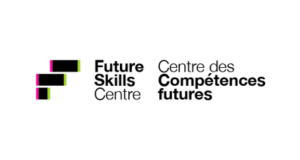

Pedro Barata
Future Skils Centre / Centre des Compétences futures, Executive Director/ Directeur général
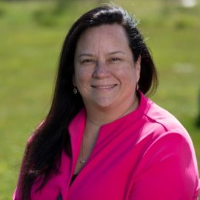
Kory Wilson
British Columbia Institute of Technology (BCIT), Indigenous Initiatives and Partnerships, Executive Director / directrice générale, Initiatives et Partenariats autochtones, Institut de technologie de la Colombie-Britannique

John McNally
Smart Prosperity Institute, Clean and Resilient Growth / Croissance propre et robuste, Institut pour l’IntelliProspérité , Program Director / directeur de programme

Zahra Ebrahim
Co-founder / cofondatrice, Monumental / Monumental
 Wednesday January 31, 2024 09:10
Wednesday January 31, 2024 09:10Career concerns can be among the most stressful demands individuals face. Career development intervention prevents and intervenes with stress and, curiously, generates future demands and additional career-related stress. Learn how mental health-informed career development helps individuals create manageable demands and stress-alleviating coping practices. In other words, learn how career development solves problems it has caused./ Les préoccupations professionnelles peuvent être l’une des exigences les plus stressantes auxquelles les personnes doivent faire face. L’intervention en matière de développement de carrière prévient et traite le stress, et, curieusement, engendre des demandes futures et un stress supplémentaire lié à la carrière. Apprenez comment un développement de carrière fondé sur la santé mentale aide les personnes à créer des exigences gérables et des pratiques d’adaptation permettant d’atténuer le stress. En d’autres termes, apprenez comment le développement de carrière résout les problèmes qu’il a causés.
Learning Outcomes/ Résultats d'apprentissage:
Understand how career concerns affect physical and mental health/ Comprendre comment les préoccupations professionnelles ont des répercussions sur la santé physique et mentale
Understand how career development creates significant demands/ Comprendre comment le développement de carrière crée des exigences importantes
Learn how practitioners can balance demands and coping in career intervention/ Apprendre comment les professionnels peuvent trouver un équilibre entre les exigences et l’adaptation dans le cadre d’une intervention de carrière
Area of Interest / Domaine d'intérêt: Client Mental Health/ Santé mentale des clients

Michael Huston
Mount Royal University, Counsellor, Associate Professor/ Université Mount Royal, conseiller d’orientation, professeur agrégé,
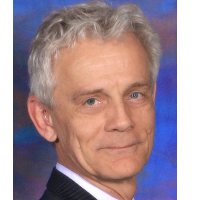
Dave Redekopp
Life Role Development Group, President / Life-Role Development Group, président,
 Wednesday January 31, 2024 09:10
Wednesday January 31, 2024 09:10We will discuss a disclosure and accommodation guide that aims to support individuals with disabilities navigate the workplace with confidence. We will explore practical tips and strategies for disclosing a disability to employers and colleagues, as well as effective approaches for requesting reasonable accommodations. Attendees will leave with actionable insights to promote inclusion and enable success in the workplace.
Learning Outcomes:
Improve understanding for when/how/if to disclose a disability
Develop strategies for supporting jobseekers with disclosure/seeking accommodations
Employers learn how to broaden recruitment strategies supporting disclosure/accommodation
Area of Interest: Supporting Clients with Disabilities

Steven Lappano
University of Toronto – Career Exploration and Education, Career Educator, Accessibility
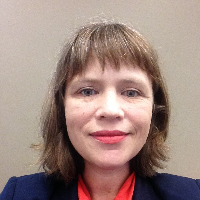
Kelci Archibald
University of Toronto, Lead Co-ordinator, Career Education
 Wednesday January 31, 2024 09:10
Wednesday January 31, 2024 09:10Changes in the labour market, employer demands, the rise of technology and increases in multi-barrier clients have highlighted the need for community services to rethink service delivery. The Canadian Coalition of Community-Based Employability Training (CCCBET) will provide a pan-Canadian discussion about the employment sector and the need for government/sector at-large to be more collaborative with communities to find innovative yet region-specific solutions that meet current labour market needs.
Learning Outcomes:
Provide a pan-Canadian perspective of employment services
Discuss innovative yet region-specific solutions
Offer key messages to help delegates in their advocacy efforts
Area of Interest: Employment/Training Programs (Community, Government, Industry)

Valérie Roy
Canadian Coalition of Community-Based Employability Training (CCCBET), Executive Director of AXTRA Alliance des centres-conseils en emploi
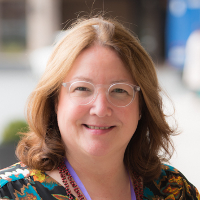
Janet Morris-Reade
ASPECT BC, Chief Executive Officer

Akosua Alagaratnam
First Work, Executive Director

Carrie Axten
Private Career Development Contractors Association of Alberta, Senior Manager, Employment Services, Prospect Human Services
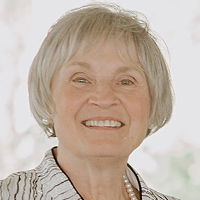
Monika Feist
Success Skills Centre, Chief Executive Officer
 Wednesday January 31, 2024 09:10
Wednesday January 31, 2024 09:10What's holding you and/or your clients back from career success? It might be hanging on to outdated ideas about the world of work. In this skill-building, fun, practical and engaging presentation, we will identify the myths and truths of work and how we and our clients can move from "I will survive" to "I will thrive."
Learning Outcomes:
Identify work myths and gain clarity on career success
Discover true career success drivers and unlock keys to thrivability
Gain actionable strategies, tips, tools and resources
Area of Interest: Future of Work and the Workplace

Sarah-Jane VandenBerg
The Career Growth Company, Career Coach | Team Builder | Author | Speaker
 Wednesday January 31, 2024 09:10
Wednesday January 31, 2024 09:10Discussion and collaboration! We invite you to share in our experiences of developing three EDI (equity, diversity and inclusion) career programs. We highlight building partnerships internally and externally, as well as securing resources and buy-in, and sharing lessons learned. This interactive session will guide participants to construct their own career development initiative through a collaborative and equitable lens. Together, we will build inclusive career programming!
Learning Outcomes:
Apply an equitable perspective to career development programming
Share successful practices in forging internal and external partnerships
Develop participants' ideas for their equitable career development programming
Area of Interest: Justice, Equity, Diversity and Inclusion

Jessica Isenor
Nova Scotia Community College, Manager, Career and Employment Services

Kim Drisdelle
Nova Scotia Community College, Accessibility Employment Co-ordinator

Shayla Simon
Nova Scotia Community College, Work Integrated Learning Co-ordinator
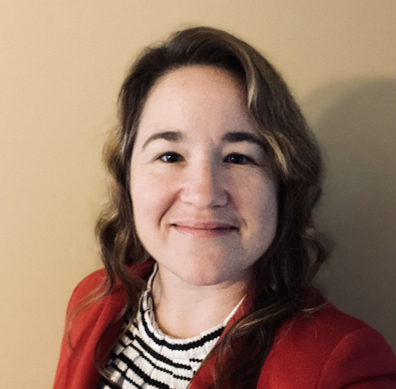
Jody Cook
Nova Scotia Community College - NSCC, Forest Career Development Coordinator

Tony Slade
Nova Scotia Community College, Faculty – Co-op
 Wednesday January 31, 2024 09:10
Wednesday January 31, 2024 09:10In this session, presenters from Zurich Canada and United Way Greater Toronto will share details about the co-design and implementation process for the Insurance Pathway. The Insurance Pathway is a workforce development intervention that trains and supports jobseekers facing barriers to employment to reach meaningful career opportunities in the insurance sector. Participants will learn about the process of moving a workforce concept from an idea to a pilot and then to a plan to scale.
Learning Outcomes:
Moving a workforce concept from idea to plan to scale
Challenges and opportunities in co-designing career pathways
Development of effective multi-sectoral workforce development partnerships
Area of Interest: Employment/Training Programs (Community, Government, Industry)
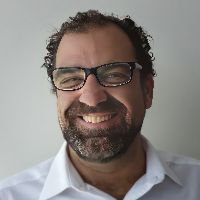
Fabio Crespin
United Way Greater Toronto, Senior Manager, Inclusive Employment

Ray Chaay
Zurich Canada, AVP, Employee Experience and Culture Manager | Human Resources
 January 31, 2024 09:10
January 31, 2024 09:10Join us for an engaging panel presentation led by Dr. Rob Shea. Esteemed individuals such as journal editors, authors, and reviewers will discuss the publication of research work. This session will explore the journey and prospects of career journal publishing while shedding light on the remarkable 20-year history of CJCD. They will answer audience queries, making it an interactive session.
Learning outcomes
Understand the concepts & procedures on publishing
Gain insight on past & future of career journals
Learn benefits of career publishing for self & others

Rob Shea
Memorial University of Newfoundland, Associate Professor Faculty of Education

Diana Boyd
Canadian Journal of Career Development, Associate Editor
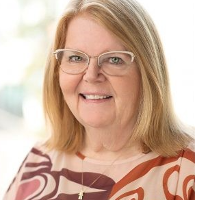
Roberta Borgen (Neault)
Life Strategies, Founder and President

Candy Ho
Assistant Professor , University of the Fraser Valley, Associate Professor
 Wednesday January 31, 2024 10:20
Wednesday January 31, 2024 10:20The Systems Theory Framework (STF) of career development is a holistic map of influences that interconnect temporally, contextually and culturally. In practice, the STF is readily applied through systems thinking, systems mapping and storytelling. This presentation will overview the STF, introduce systems thinking and systems mapping, and provide an opportunity for participants to consider applications in their own practice./ La théorie des systèmes du développement de carrière est une carte holistique des influences qui s’interconnectent dans le temps, le contexte et la culture. Dans la pratique, cette théorie s’applique facilement par le biais de la pensée systémique, de la cartographie des systèmes et de la narration. Cette présentation donnera une vue d’ensemble de la théorie des systèmes, présentera la pensée systémique et la cartographie des systèmes, en plus de permettre aux participants d’envisager des applications dans leur propre pratique.
Learning Outcomes/ Résultats d'apprentissage:
Enhanced knowledge of the STF and its relationship to practice/ une meilleure connaissance de la théorie des systèmes et de sa relation avec la pratique
Enhanced understanding about systems thinking and systems mapping/ une meilleure compréhension de la pensée systémique et de la cartographie des systèmes
Strategies for applying the STF/ apprendre des stratégies pour l’application de la théorie des systèmes
Area of Interest / Domaine d'intérêt: Effective Career Counselling/Coaching Techniques/ Techniques d’accompagnement et d’orientation professionnelle efficaces

Mary McMahon
The University of Queensland, Honorary Associate Professor/ Université du Queensland, professeure agrégée honoraire,
 Wednesday January 31, 2024 10:20
Wednesday January 31, 2024 10:20Dans le but de mieux comprendre les spécificités de l’accompagnement en orientation et en insertion socioprofessionnelle (ISP) des personnes réfugiées faiblement scolarisées, l’atelier se veut un espace de réflexion afin de mieux s’outiller pour faire face aux défis spécifiques de cette population par une approche d’intervention interculturelle. Le guide produit avec le financement de CERIC vous sera présenté.
Résultats d'apprentissage:
Connaitre les défis spécifiques auxquels cette population doit faire face
Aborder certaines approches de développement des compétences interculturelles
Réfléchir aux différentes thématiques propres aux processus d’orientation
Domaine d'intérêt: Travail avec les nouveaux arrivants et les réfugiés
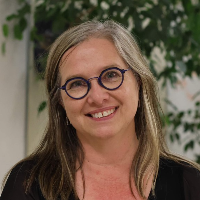
Julie Morissette
Université de Sherbrooke, Doctorante
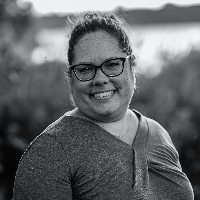
Annie Gourde
Université Laval, Doctorante
 Wednesday January 31, 2024 10:20
Wednesday January 31, 2024 10:20Have you ever met a brand with low self-esteem? No! Brands don't have low self-esteem. Nike isn't Adidas. Coca-Cola doesn't mimic Pepsi. Yet Canadian workers' mental health is suffering from imposter syndrome, not enough-ness, anxiety and more. People feel disconnected from themselves. Discover how branding principles can help us know ourselves again and be as confident as our favourite brands.
Learning Outcomes:
Learn to see yourself (just like brands know themselves)
Show peers they're seen (like brands do for fans)
Create connected communities (the way brands do)
Area of Interest: Client Mental Health

Keka DasGupta
The Art of Life-ing and Precision Marketing Group Inc., Founder and President
 Wednesday January 31, 2024 10:20
Wednesday January 31, 2024 10:20Participants will gain knowledge that is inclusive of Indigenous values and culture to help address client needs, including dealing with grief and trauma. You will also learn to achieve greater awareness into personal growth, well-being and self-care.
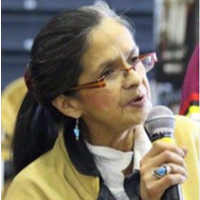
Annie Smith St-Georges
Senior Algonquin Traditional Elder
 Wednesday January 31, 2024 10:20
Wednesday January 31, 2024 10:20We all know students who feel stressed about not having a clear career path after school or parents who are anxious about their adolescent's "lack of direction." In this interactive session, we will explore the research and benefits related to a prolonged "sampling period" as well as strategies to help young people have more confidence in embracing career uncertainty.
Learning Outcomes:
The personal and economic benefits of prolonged career exploration
Strategies to help youth embrace career uncertainty
Structures and approaches that facilitate self– and career discovery
Area of Interest: Career Development for Youth Outside of School
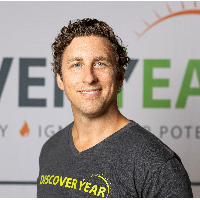
Jay Gosselin
Discover Year, Founder and Program Director
 Wednesday January 31, 2024 10:20
Wednesday January 31, 2024 10:20The COVID pandemic has forever changed the workplace as we know it. While technical skills are still important, the biggest concern for employers is the diminishing soft skills of the workforce. This workshop will provide five key strategies for developing the essential work ethic skills employers demand.
Learning Outcomes:
Understand the evolution of workplace soft skills post-COVID
See the impact of the soft skills gap on performance
Learn five ways to develop soft skills with our participants
Area of Interest: Future of Work and the Workplace

Josh Davies
The Centre for Work Ethic Development, CEO
 Wednesday January 31, 2024 10:20
Wednesday January 31, 2024 10:20Paralleling the book The Long Tail about mass-personalized choices (as opposed to on-size-fits-all), jobseekers can now find jobs that tailor-fit their needs. Amazon commercialized the "economics of abundance." The job market has changed and personalization in the name of defining your own career success is possible. Like Spotify and Netflix, jobseekers have tools to find ultra-satisfying careers.
Learning Outcomes:
New approaches to coaching how to define career success
Possibility of building career in domains you never thought possible
Difference between past and present job markets
Area of Interest: Future of Work and the Workplace

Greg Boyd
Uvaro, SVP of Revenue
 Wednesday, January 31, 2024 11:20
Wednesday, January 31, 2024 11:20 Wednesday January 31, 2024 11:45
Wednesday January 31, 2024 11:45In this keynote presentation, Dr. Sean Lessard reflects on his work alongside Indigenous youth both in and outside of schools. His approach to working alongside youth on the margins is based on the Pedagogy of the Heart and what he loosely coins "radical advocacy." Sean has worked across North America with youth and is especially known for his design of graduation coach models, transition/career planning and "school at any place and at any time" approaches. He has most recently turned his attention to the youth from his home community and has worked toward designing alongside them a land-based and wellness hub for healing. Through speaking, Sean has specifically purchased over 1,000 pairs of shoes for elders and youth and over 300 bikes so each child might have an opportunity “to bike to places within their imaginations." / Dans cette présentation, M. Lessard réfléchit à son travail auprès des jeunes autochtones, à l’intérieur et à l’extérieur des écoles. Son approche du travail avec les jeunes en marge est fondée sur la pédagogie du cœur et sur ce qu’il appelle vaguement le « plaidoyer radical ». Il a travaillé avec des jeunes dans toute l’Amérique du Nord et il est particulièrement connu pour sa conception de modèles d’accompagnement à l’obtention du diplôme, de planification de la transition et de la carrière et d’approches de « l’école en tout lieu et en tout temps ». Plus récemment, il s’est intéressé aux jeunes de sa communauté d’origine et a travaillé avec eux à la conception d’un centre de guérison basé sur la terre et le mieux-être. M. Lessard a notamment acheté, grâce à ses conférences, plus de 1 000 paires de chaussures pour les personnes âgées et les jeunes et plus de 300 vélos pour que chaque enfant puisse avoir la possibilité « d’aller à vélo dans les endroits qu’il a imaginés ».

Sean Lessard
Award-winning Professor, Writer and Researcher in Indigenous Youth Wellness / Sean Lessard, professeur, écrivain et chercheur primé dans le domaine du bien-être des jeunes autochtones
Keynote Partner / Partenaire - Allocution
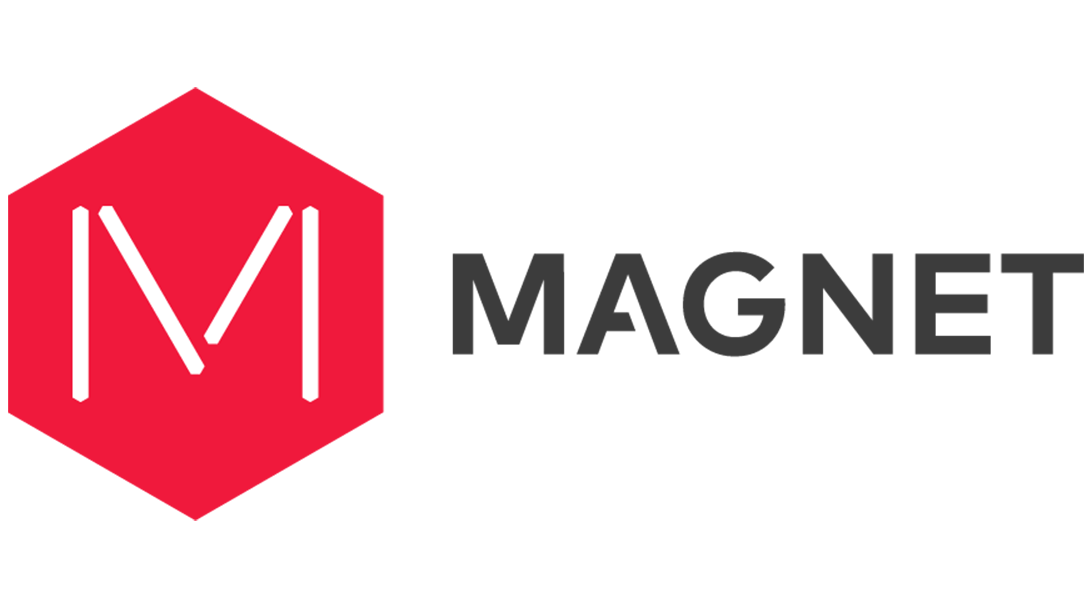
 Wednesday, January 31, 12:45
Wednesday, January 31, 12:45 Monday January 29, 2024 13:00
Monday January 29, 2024 13:00Volatility. Uncertainty. Complexity. Ambiguity. Four words that have defined our lives over the past few years. Now, emerging from chaos, we face yet another challenge – navigating a fast-approaching future of work, an always-on "new abnormal" characterized by hybrid work, persistent technological disruption, and constantly shifting behaviours and expectation Today’s organizations must compress their five-year plans to two years (or less) to thrive in tomorrow's fast-paced world. In an age where everything that can be automated will be, it's imperative that people change before it's too late. To meet this challenge, attendees of this dynamic session require a bold new approach to navigating constant change; they must lean into an array of uniquely human qualities – such as attunement, (true) resilience and creativity – that are difficult, if not impossible, to disrupt. The future of work belongs to those who can change before change is required./ Volatilité. Incertitude. La complexité. Ambiguïté. Quatre mots qui ont défini nos vies au cours des dernières années. Aujourd’hui, émergeant du chaos, nous faisons face à un autre défi : naviguer dans un avenir du travail qui se rapproche rapidement, un « nouvel anormal » toujours en mouvement, que caractérisent un travail hybride, une perturbation technologique persistante et des comportements et des attentes en constante évolution. Les organisations doivent réduire aujourd’hui leurs plans de cinq à deux ans (ou moins) pour prospérer dans le monde en constante évolution de demain. À une époque où tout ce qui peut être automatisé le sera, il est impératif que les gens changent avant qu’il ne soit trop tard. Pour relever ce défi, les participants à cette session dynamique doivent avoir une nouvelle approche audacieuse pour naviguer dans le changement constant; ils doivent s’appuyer sur un ensemble de qualités humaines uniques – l’écoute, la (véritable) résilience et la créativité – qui sont difficiles, voire impossibles, à perturber. L’avenir du travail appartient à ceux qui peuvent changer avant que le changement ne s’impose.

Hamza Khan
Future of Work and People-first Leadership Expert, Bestselling Author/ Expert de l’avenir du travail et du leadership axé sur l’être humain, auteur de best-sellers
 Tuesday January 30, 2024 12:30
Tuesday January 30, 2024 12:30Every year, hundreds – even thousands – of people have the opportunity to attend one of Chantal Petitclerc’s talks .
Chantal speaks about the stages of her life, the circumstances that brought her to become a wheelchair track and field athlete, her major victories and her minor disappointments. Without preaching, she uses her own story to illustrate the importance of perseverance, ambitious goals, vision and, especially, dreams. / Chaque année, des centaines, voire des milliers de personnes ont la chance d’assister à l’une des conférences de Chantal Petitclerc. Chantal évoque les étapes de sa vie, les circonstances qui l’ont amenée à devenir athlète en fauteuil roulant, ses grandes victoires et ses petites déceptions. Sans sermonner, elle utilise sa propre histoire pour illustrer l’importance de persévérer, d’établir une vision et des objectifs ambitieux et, surtout, de poursuivre ses rêves.

Chantal Petitclerc
Paralympic Champion | World Record Holde / Championne paralympique | Détentrice de records du monde
 Tuesday January 30, 2024 15:15
Tuesday January 30, 2024 15:15The world of work is undergoing rapid change and turbulence due to global influences. There are many competing and conflicting narratives about trends for the provision of career development services. Along with being reactive to turbulence and trends, it is critical to be proactive in shaping policies and practices in ways that support people to navigate new ways of working. It is timely to consider how we might shape the future, through considering what has stood the test of time, what we are doing well and what we might want to keep or change. In this keynote presentation, Nancy Arthur will address some contemporary challenges and invite career development practitioners to consider core values that underpin business as (un)usual. / En raison d’influences mondiales, le monde du travail change rapidement et subit des turbulences. Les tendances de l’offre de services de développement de carrière se croisent et se contredisent. Il faut tenir compte des turbulences et des tendances et élaborer des politiques et des pratiques qui aideront le personnel à s’adapter aux nouvelles méthodes de travail. L’heure est venue de façonner l’avenir, en tenant compte de ce qui a résisté à l’épreuve du temps, de nos forces et de ce que nous voulons conserver ou changer. Dans cette allocution, Nancy Arthur abordera certains défis actuels et invitera les intervenants en développement de carrière à réfléchir aux valeurs fondamentales qui sous-tendent une situation où les affaires suivent (presque) leur cours normal.

Nancy Arthur
Nanc Arthur, Professor and Dean Research for UniSA Business, University of South Australia and Professor Emeritus, University of Calgary/ Nancy Arthur, professeure et doyenne de la recherche à la UniSA Business (Université d’Australie-Méridionale) et professeure émérite à l’Université de Calgary ,
 Wednesday January 31, 2024 11:45
Wednesday January 31, 2024 11:45In this keynote presentation, Dr. Sean Lessard reflects on his work alongside Indigenous youth both in and outside of schools. His approach to working alongside youth on the margins is based on the Pedagogy of the Heart and what he loosely coins "radical advocacy." Sean has worked across North America with youth and is especially known for his design of graduation coach models, transition/career planning and "school at any place and at any time" approaches. He has most recently turned his attention to the youth from his home community and has worked toward designing alongside them a land-based and wellness hub for healing. Through speaking, Sean has specifically purchased over 1,000 pairs of shoes for elders and youth and over 300 bikes so each child might have an opportunity “to bike to places within their imaginations." / Dans cette présentation, M. Lessard réfléchit à son travail auprès des jeunes autochtones, à l’intérieur et à l’extérieur des écoles. Son approche du travail avec les jeunes en marge est fondée sur la pédagogie du cœur et sur ce qu’il appelle vaguement le « plaidoyer radical ». Il a travaillé avec des jeunes dans toute l’Amérique du Nord et il est particulièrement connu pour sa conception de modèles d’accompagnement à l’obtention du diplôme, de planification de la transition et de la carrière et d’approches de « l’école en tout lieu et en tout temps ». Plus récemment, il s’est intéressé aux jeunes de sa communauté d’origine et a travaillé avec eux à la conception d’un centre de guérison basé sur la terre et le mieux-être. M. Lessard a notamment acheté, grâce à ses conférences, plus de 1 000 paires de chaussures pour les personnes âgées et les jeunes et plus de 300 vélos pour que chaque enfant puisse avoir la possibilité « d’aller à vélo dans les endroits qu’il a imaginés ».
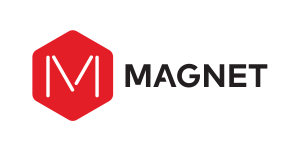

Sean Lessard
Award-winning Professor, Writer and Researcher in Indigenous Youth Wellness / Sean Lessard, professeur, écrivain et chercheur primé dans le domaine du bien-être des jeunes autochtones
Keynote Partner / Partenaire - Allocution

 Monday January 29, 2024 10:30
Monday January 29, 2024 10:30Shaping the future requires experiential mindsets and DEI approaches. While mapping Canada's career development sector, Challenge Factory used creative, human-centric tools to help us first define the boundaries of the field. Only then could we accurately and feasibly map it. From the vital role of trust to using personas, join us to discover both key findings and innovative research methodologies./ Pour façonner l’avenir, il faut des approches axées sur l’expérience et la diversité, l’équité et l’inclusion. En cartographiant le secteur du développement de carrière au Canada, Challenge Factory a utilisé des outils créatifs et centrés sur l’humain pour nous aider à délimiter les frontières du domaine. C’est la seule façon de le cartographier de manière précise et réalisable. Du rôle vital de la confiance à l’utilisation des personas, soyez des nôtres pour découvrir à la fois des résultats clés et des méthodologies de recherche innovantes.
Learning Outcomes/ Résultats d’apprentissage:
Review highlights from our project mapping the career development sector/ Examiner les points forts de notre projet de cartographie du secteur du développement de carrière
Explore use and impact cases based on key project findings/ Explorer les cas d’utilisation et d’incidence en fonction des principaux résultats du projet
Examine innovative research methodologies to analyze impossibly large datasets/ Examiner des méthodologies de recherche innovantes pour analyser des ensembles de données extrêmement volumineux
Area of Interest / Domaine d'intérêt: Application of Current Research, Theory & Methodology/ Application de la recherche, de la théorie et de la méthodologie actuelles

Lisa Taylor
Challenge Factory, President, Founder/ Président, fondatrice

Taryn Blanchard
Challenge Factory, Head of Research/ Responsable de la recherche
Main Stage Session Partner – Partenaire séance principale

 Monday January 29, 2024 10:30
Monday January 29, 2024 10:30In this session, hear from various perspectives (including Metis, First Nations and Inuit) about what is needed for their learners. Presenters will share ideas and best practices for recruiting, supporting and placing Indigenous learners. Participants will receive feedback on how they can raise support levels for Indigenous learners.
Learning Outcomes:
How to better support Indigenous learners on their career journey
How to better communicate, recruit and place Indigenous learners
Hear ideas and best practices and stories of what's working
Area of Interest: Indigenous Career Development

Darian Kovacs
Jelly Academy, Partner

John DeGiacomo
Anishinabek Employment and Training Services, Executive Director

Lisa Savill
Rupertsland Institute, Director – Métis Endowments and Post-Secondary Initiatives

Dorothy Pye Johnson
NunatuKavut Community Council, Director of Employment & Skills Development and Special Advisor to the Office of the Presiden
 Monday January 29, 2024 10:30
Monday January 29, 2024 10:30In November 2021, Manitoba Institute of Trades and Technology (MITT) Adult Learning Centres launched its first career development supports in the Adult Basic Education program. Since inception, career conversations have been critical to the student experience. Career has moved Adult Basic Education from just a mature high school diploma, to a world of opportunities and recognition of the wisdom and potential of our learners.
Learning Outcomes:
Student success in Adult Basic Education
Career conversations reducing barriers to education
Adult Basic Education connects people with possibilities
Area of Interest: Adult Education and Career Development

Meghan Lavallee
Manitoba Institute of Trades and Technology, Director, Career and Student Engagement
 Monday January 29, 2024 10:30
Monday January 29, 2024 10:30During uncertain times, clients may walk into sessions with their anxiety triggering the practitioner's own unconscious conflicts. This trigger can lead us questioning our competencies/experiencing burnout. We will explore techniques to address those clients who may be paralyzed by anxiety, thereby procrastinating career planning, struggling with job search actions and/or disengaging with career counselling/advising services.
Learning Outcomes:
Understanding routine stress/career anxiety vs Generalized Anxiety Disorder
Integrating strength-based micro-interventions for job search skills development
Modifying action plans to foster clients' successes/well-being
Area of Interest: Effective Career Counselling/Coaching Techniques

Sonny Wong
Toronto Metropolitan University, Registered Psychotherapist
 Monday January 29, 2024 10:30
Monday January 29, 2024 10:30The resume has long been, and still is, the primary document for anyone seeking to find or change employment. But resumes have changed and evolved. If your knowledge of resumes and your advice to clients are based on strategies and practices from 10, five or even two years ago, it's time to update your expertise and learn what works today.
Learning Outcomes:
Understand today's trends; write for both human eyes and ATS
Write more concisely: highlight essentials, reduce clutter, increase impact
Gain fresh ideas for capturing and showcasing critical information
Area of Interest: Application of Current Research, Theory & Methodology

Louise Kursmark
Emerald Career Publishing, Author/Publisher/Master Resume Writer
 Monday January 29, 2024 10:30
Monday January 29, 2024 10:30The business case for a decarbonized economy rests on workers' and enterprises' successful transition from jobs expected to disappear to those that will emerge and grow. These changes will affect certain sectors disproportionately and will need to consider equity, diversity and inclusion. This session explores the key competencies required to support this transition and the opportunities produced for diverse jobseekers.
Learning Outcomes:
Understand how decarbonization affects skills and equity-deserving groups
Identify pathways to employment and entrepreneurship in new green economies
Explore the implications for training, upskilling and reskilling
Area of Interest: Adult Education and Career Development

Wendy Cukier
Toronto Metropolitan University, Diversity Institute, Founder & Academic Director; Professor, Entrepreneurship & Strategy
 Monday January 29, 2024 10:30
Monday January 29, 2024 10:30Featuring insights from the 2023 Student Career Interests Report (a survey of over 16,000 post-secondary students), this presentation will provide the most authoritative look at today's students' mindsets. Learn how students' attitudes toward career development, employers and the world of work are evolving as well as their expectations of their schools in terms of career development support and work opportunities.
Learning Outcomes:
What today's students want from their careers and employers
How to make a stronger case student career development
How to best support students' career development
Area of Interest: Career Education Post-Secondary

Graham Donald
Brainstorm Strategy Group Inc., Founder & President
 Monday January 29, 2024 10:30
Monday January 29, 2024 10:30A solid understanding of the military value proposition stems from clearly understanding the military experience. One key aspect of the military experience that many service providers overlook is recognizing that the military is a distinct culture within Canadian society. A roadmap to developing military cultural competency (MCC) is offered, beginning with self-assessment and building a military knowledge base, including practical recommendations.
Learning Outcomes:
Developing military cultural competence (MCC) counselling techniques
A roadmap to developing MCC
Aligning one’s counselling approach with clients who have military service

Jordan Camarda
Canadian Armed Forces Transition Group, National Manager, Military Transition Engagements & Partnerships
 Monday January 29, 2024 10:30
Monday January 29, 2024 10:30Vivre une impasse professionnelle peut engendrer une grande détresse. Cet atelier portera sur le potentiel de l’impasse pour la réflexion et la transformation de sa carrière à travers le désengagement. L'importance d’abandonner un objectif important mais inatteignable, les difficultés y étant associées et la manière dont les professionnels de carrière peuvent aider leurs clients à se désengager sainement seront abordés.
Résultats d'apprentissage:
Définir les différentes facettes du désengagement des objectifs
Découvrir ce nouveau domaine de recherche en contexte de carrière
Appliquer ces connaissances dans sa pratique professionnelle
Domaine d'intérêt: Area of Interest: Effective Career Counselling/Coaching Techniques
Domaine d'intérêt: Application des recherches, théories et méthodologie actuelles

Geneviève Taylor
Université du Québec à Montréal, Professeure
 January 29, 2024 14:15
January 29, 2024 14:15How can scholarship providers, community organizations and post-secondary institutions collaborate to improve outcomes for equity-deserving students? RBC Foundation recently released the first comprehensive review of scholarships in Canada in over 20 years. This session will unpack findings from the report with a panel of community leaders framed by a case study of the RBC Future Launch Scholarship for Black Youth. / Comment les fournisseurs de bourses, les organismes communautaires et les établissements d’enseignement postsecondaire peuvent-ils collaborer pour améliorer les résultats des étudiants en quête d’équité? La Fondation RBC A récemment publié la première revue complète des bourses d’études au Canada depuis plus de 20 ans. Durant cette séance, les conclusions du rapport seront analysées par un groupe de chefs communautaires, dans le cadre d’une étude de cas de la Bourse d’études Objectif avenir RBC pour jeunes Noirs.
Learning outcome / Résultats d’apprentissage :
How partnering across sectors in scholarship provision advances equity / Comment les partenariats intersectoriels en matière de bourses d’études favorisent l’équité
Understanding barriers youth face in accessing scholarships in Canada / Comprendre les obstacles auxquels les jeunes sont confrontés dans l’accès aux bourses d’études au Canada
How data/examples from RBC’s report can inform future programming / Comment les données et exemples du rapport de la RBC peuvent éclairer les futurs programmes
Area of interest / Domaine d'intérêt : Career Development for Youth Outside of School / Développement de carrière chez les jeunes en dehors de l’école

Kate Gatto
RBC, Senior Manager, Social Impact & Innovation / première directrice, Innovation et impact sociaux, RBC

Farahnaaz Kanji
RBC, Director, Youth Strategy / Directrice générale, Innovation et stratégie jeunesse, RBC
Learning Advancement Partner / Partenaire – Avancement l’apprentissage


Sagal Ismail
Centre for Resilience and Social Development

Bibiana Valencia

Traci Spour-Lafrance
Ottawa Community Housing Foundation
 Monday January 29, 2024 14:15
Monday January 29, 2024 14:15Looking forward to 2040, what might be the role of career developers? Will “careers” as they are currently conceptualized exist in the same way, or how might they evolve given current macro-level changes affecting jobs and the way we work? Learn about newly released research exploring the future of career development.
Learning Outcomes:
An understanding of the macro factors redefining the changing workplace and career paths
How these changes will affect the future role of career developers
What career-oriented services and supports people will need in the future and how current services may adapt
Area of Interest: Future of Work and the Workplace

Jessica Thornton
Creative Futures Studio , Co-President

Heather Russek
Co-President , Creative Futures Studio
 Monday January 29, 2024 14:15
Monday January 29, 2024 14:15This presentation will review the collaborative and consultative process that has culminated in the development of a CERIC-funded teaching toolkit for inspiring and nurturing career-related learning with students in grades 4-6. Participants will explore the adaptability of the toolkit and learn about the breadth and depth of exciting ways to inspire students in their lives, learning and future work.
Learning Outcomes:
Understand the important contributions from community that support foundational career-related learning
Investigate foundational and transferable skills being developed in Grades 4-6
Explore the teaching toolkit content and review activities and resources
Area of Interest: Career Education K-12 Students

Stefan Merchant
Queen's University, Assistant Professor (Adjunct)

Lorraine Godden
Carleton University, Instructor II
 Monday January 29, 2024 14:15
Monday January 29, 2024 14:15Policy responses following economic shocks like recessions typically focus on short-term solutions, but the long-term effects on youth are pronounced. Young people land lower-quality work with lesser pay. This leads to labour market scarring, which has lasting impacts on a person’s earnings and career opportunities over time. High youth unemployment during a recession risks the well-being and social inclusion of that generation. Young people with lower levels of education, women and racialized youth suffer even larger losses of earnings during times of economic uncertainty. From health impacts to decreased lifetime earnings, this session will explore how deep the issue goes and how policy-makers can take action to reduce long-term negative effects on youth.
Learning Outcomes:
Identify key risks of labour market scarring on youth following recessions
Learn about gaps in existing policy responses
Explore solutions to mitigate the impacts of scarring on youth over time
Area of Interest: Career Development for Youth Outside of School

Lisa Lalande
Century Initiative, CEO
 Monday January 29, 2024 14:15
Monday January 29, 2024 14:15Faculty champions offer a unique opportunity to reach marginalized students and build career efficacy in the classroom. Discover practical tools to take faculty from reluctant to empowered career allies. Experience an innovative tool that resonates with both faculty and students called the Challenge mindset.
Learning Outcomes
Integrate career development in the classroom, especially for marginalized students
Support faculty in understanding the value of career development
Discover successful case studies featuring classroom presentations and conferences
Area of Interest: Career Education Post-Secondary

Nicola Edwards
University of Guelph, Career Advisor

JP Michel
SparkPath, Founder
 Monday January 29, 2024 14:15
Monday January 29, 2024 14:15What are the roles of wellness, career development and community for transitioning into careers in tech? We will explore the role of career development and well-being in charting a meaningful career switch into the booming Canadian tech industry, with a special focus on supporting minority groups (Indigenous and Black professionals, women, 2SLGBTQI+, immigrants and other equity-deserving groups) in tech.
Learning Outcomes:
Understand the significance of wellness in a tech career
Understand the significance of centring underrepresented groups in tech
Learn about support systems that foster belonging in tech education
Area of Interest: Adult Education and Career Development

Sommer Harris
British Columbia Institute of Technology, Strategic Program and Industry Lead at the Tech Collider

Dinuka Gunaratne
Northeastern University, Director of Career Development and Experiential Learning

Victoria Williams
Northeastern University Vancouver, Wellness Program Specialist

Ethan Selinger
Northeastern University, Associate Co-op Faculty & Assistant Director of MS Align Career Advising
 Monday January 29, 2024 14:15
Monday January 29, 2024 14:15In this session, a panel of experts will discuss findings from the Guided Pathways National Skills for Success (SFS) training project including the piloting of the new assessment tool for the social-emotional skills components of the SFS model (Adaptability, Collaboration, Communication and Problem Solving). The panel will examine the impact of integrating the model in everyday career development practitioner practice.
Learning Outcomes:
Understand the value of integrating the SFS model into employment services
Learn the value of assessing skills for matching employment goals
See how data support a skills-focused approach in career development
Area of Interest: Application of Current Research, Theory & Methodology

Tamara Jorgic
Alberta Workforce Essential Skills Society (AWES), Director of Projects

Cindy Messaros
AWES, Executive Director

Shawn de Raaf
Social Research and Demonstration Corporation (SRDC), Research Director

Richard Roberts
RAD Science, Co-Founder and Chief Scientist

Micah Myers
RAD Science, Co-Founder and Chief of Operations
 Monday January 29, 2024 14:15
Monday January 29, 2024 14:15Many clients experience employment services as a "spin cycle," where they receive services, try unsuccessfully to enter the workforce, and return for more services. Building on research being conducted by the Canadian Career Development Foundation with both clients and service providers, this session presents up-to-date information on clients' needs, gaps in services, and practice/policy suggestions to end the spin cycle.
Learning Outcomes:
Understanding common needs of clients who repeatedly access employment services
Understanding major gaps in employment services for these clients
Identifying ways to improve employment services for these clients
Area of Interest: Employment/Training Programs (Community, Government, Industry)

Jose Domene
University of Calgary, Professor

Trina Stanford
Canadian Career Development Foundation, Project Associate
 Monday January 29, 2024 14:15
Monday January 29, 2024 14:15Ontario is undergoing transition to Integrated Employment Services (IES). First Work has conducted over three years of research and monitoring of this system transformation, taking in learnings from employment service providers, service system managers and government on the impact of this systems change. First Work will share insights from Ontario and other Canadian jurisdictions as well as best practices for improved transition.
Learning Outcomes:
Understand Ontario's vision for this transformation
Understand the changes affecting clients and employment service providers
Understand other Canadian jurisdictions' lessons learned
Area of Interest: Workforce Planning & Development

Akosua Alagaratnam
First Work, Executive Director

Karen Wilson
EEC, Executive Director

Deanna Villella
Job Gym, a division of the John Howard Society of Niagara, Senior Manager
 Monday January 29, 2024 15:45
Monday January 29, 2024 15:45Self-awareness is an essential life skill for crafting our life/career journeys. It can lead to greater self-knowledge and self-efficacy. But gaps in awareness can make it challenging to know who we really are and how others perceive us. How can we equip people to practise positive self-reflection and to receive positive feedback from others to increase their self-awareness?/ La conscience de soi est une compétence de vie essentielle pour construire notre parcours de vie et de carrière. Elle peut conduire à une meilleure connaissance de soi et à un meilleur sentiment d’efficacité personnelle. Toutefois, des lacunes dans la prise de conscience peuvent rendre difficile la connaissance de ce que nous sommes vraiment et de la façon dont les autres nous perçoivent. Comment donner aux gens les moyens de pratiquer une autoréflexion positive et de recevoir des commentaires positifs de la part des autres afin d’améliorer leur conscience de soi?
Learning Outcomes/ Résultats d'apprentissage:
Explore how self-awareness is a necessary precursor to life/career development/ Explorer comment la conscience de soi est indispensable au développement de la vie personnelle et de la carrière
Identity reasons why many people struggle with self-awareness/ Identifier les raisons identitaires pour lesquelles de nombreuses personnes ont du mal à bien se connaître
Learn strategies to facilitate positive self-reflection and positive feedback from others/ Apprendre des stratégies pour faciliter l’autoréflexion positive et la réception de commentaires positifs de la part des autres
Area of Interest / Domaine d'intérêt: Effective Career Counselling/Coaching Techniques/ Techniques d’accompagnement et d’orientation professionnelle efficaces

Gray Poehnell
Ergon Communications, Life/Career Coach/ accompagnateur en développement personnel et en gestion et transition de carrière
 Monday January 29, 2024 15:45
Monday January 29, 2024 15:45Despite the growing number of diversity hiring plans implemented across various sectors, jobseekers still have concerns about facing bias during the hiring process. As a result, marginalized clients suffer from emotional weathering and trauma when facing hiring discrimination. In this session, the presenter will share the impact of workplace discrimination on mental health.
Learning Outcomes:
Understand hiring bias and its impact on jobseekers
Articulate the impact workplace discrimination has on mental health
Learn key terms regarding diversity, equity and inclusion
Area of Interest: Justice, Equity, Diversity and Inclusion

Lakeisha Mathews
NCDA/The University of Baltimore, Director, Career & Internship Center
 Monday January 29, 2024 15:45
Monday January 29, 2024 15:45There are many benefits to creating neuroinclusive workspaces, yet neurodivergent Canadians continue to face barriers to employment and career progression. This session will summarize key findings from a study conducted by The Conference Board on behalf of the Future Skills Centre on how to break down these barriers and improve career outcomes for neurodivergent workers.
Learning Outcomes:
Better understand what neurodiversity is and how it manifests in the workplace.
Identify the barriers that neurodivergent workers face and understand their implications for career success.
Acquire strategies for promoting the recruitment and retention of neurodivergent workers.
Area of Interest: Justice, Equity, Diversity and Inclusion

Dr. Jennifer Fane
The Conference Board of Canada, Senior Research Associate, Education & Skills
 Monday January 29, 2024 15:45
Monday January 29, 2024 15:45As technology and industry needs continue to evolve, the landscape of tomorrow's careers is rapidly changing. This session will examine the skills and training required for success in the future. First-time, immigrant and mature students within a vocational education system are an important part of the solution and it's time for new ideas.
Learning Outcomes:
Understanding of career colleges in Canada
Student outcomes – options for the future
New outlooks on education and career opportunities
Area of Interest: Career Education Post-Secondary

Michael Sangster
National Association of Career Colleges, Chief Executive Officer
 Monday January 29, 2024 15:45
Monday January 29, 2024 15:45For over 20 years, Julie Labrie, one of Canada's top recruitment leaders, has worked with HR leaders and jobseekers – connecting people to their dream jobs and building dream teams for organizations. In this session, Julie breaks down in tangible steps what each side will be looking for in 2024, and how to help both sides find their perfect match!
Learning Outcomes:
Help jobseekers understand exactly what prospective employers need today
Help employers go below the surface to identify dream candidates
Discover new matchmaking strategies that can produce win-win recruitment results
Area of Interest: Employee Recruitment & Engagement
Area of Interest: Employee Recruitment & Engagement

Julie Labrie
BlueSky Personnel Solutions, President
 Monday January 29, 2024 15:45
Monday January 29, 2024 15:45Career development helps people write their own life stories and be architects of their futures. As career development professionals, we help others do that. But what about us? Who shapes our field's policies, our learning and the story of our impact? Join this conversation to shape how our sector can write our own narrative and build our own future.
Learning Outcomes:
Examine the critical connection between practice, research and policy
Contribute to shaping the Career Development Professional Centre
Explore how our sector can take charge of our future
Area of Interest: Building the Profile and Sustainability of the Career Development Sector

Sareena Hopkins
CCDF, Executive Director

Deirdre Pickerell
Canadian Career Development Foundation, Program Director
 Monday January 29, 2024 15:45
Monday January 29, 2024 15:45Join Deborah Bromley as she shares findings from her recent master's work on women with disabilities (WWD) – an autoethnography addressing barriers to employment and advancement and how mentorship and entrepreneurship contributed to her ultimate success as a senior leader. This inspirational work serves as a model to help other WWD reach their true potential in work and life.
Learning Outcomes/ Résultats d’apprentissage:
Gain valuable insight to support WWD in employment
Explore how evidence-based research can support bids
Learn how educational inquiry can help inform industry programming
Area of Interest: Supporting Clients with Disabilities

Deborah Bromley
ETHOS Career Management Group Ltd., President & CEO
 Monday January 29, 2024 15:45
Monday January 29, 2024 15:45Career development services need a paradigm shift to address the complexities of a rapidly evolving professional landscape. Based on work with international students and immigrants, this session explores how integrating the principles and competencies of entrepreneurship into career development curriculums can equip individuals with the agility needed to navigate uncertainty and thrive in diverse career opportunities.
Learning Outcomes:
Understand the disproportionate impact an uncertain world has on vulnerable groups in employment
Identify the benefits of an entrepreneurial mindset in career guidance
Practise tools for integrating an entrepreneurial mindset into career services
Area of Interest: Entrepreneurship & Self-Employment

Scott Mallory
ISM Arts & Culture, Founder/Director

Tam Nguyen
Empurpose, Career Coach
 Monday January 29, 2024 15:45
Monday January 29, 2024 15:45In this interactive presentation, discover the science of heart coherence and its practical application in career development. Learn a comprehensive model incorporating heart coherence into career planning, providing practitioners with a powerful tool to enhance their effectiveness. Gain insights to optimize personal and professional growth, fostering resilience and success. Elevate your career development practice through the power of heart coherence.
Learning Outcomes:
Participate in a powerful heart coherence practice
Learn how connecting head and heart creates optimal outcomes
Learn to use heart coherence for personal and professional growth
Area of Interest: Effective Career Counselling/Coaching Techniques

Shirin Khamisa
Careers by Design, Founder & Practice Leader
 Tuesday January 30, 2024 09:45
Tuesday January 30, 2024 09:45In spring 2023, the Career Development Professional Centre (CDPC) and Indigenous groups collaborated in piloting new training in career development. This session explores challenges faced by Indigenous communities in accessing relevant training that maintains a focus on community building, values and inclusion, and the learning that comes from collaboration. Panellists will share experiences in building partnerships and effective training programs that honour Indigenous communities./ Au printemps 2023, le Centre d’expertise en développement de carrière (CEDC) et des groupes autochtones ont collaboré à la mise à l’essai d’une nouvelle formation en développement de carrière. Cette séance explore les difficultés auxquelles doivent faire face les communautés autochtones lorsqu’il s’agit d’accéder à des formations pertinentes qui mettent l’accent sur le renforcement de la communauté, les valeurs et l’inclusion, ainsi que sur l’apprentissage qui découle de la collaboration. Les intervenants raconteront leurs expériences en matière de création de partenariats et de programmes de formation efficaces qui honorent les communautés autochtones.
Learning Outcomes/ Résultats d'apprentissage:
Understand some considerations to develop accessible training for Indigenous audiences/ Comprendre certains aspects à prendre en compte pour élaborer une formation accessible aux Autochtones
Foster inclusion and equitable access to knowledge for Indigenous learners/ Favoriser l’inclusion et l’accès équitable au savoir pour les apprenants autochtones
Support Indigenous capacity building for accessible, valuable and lifelong learning/ Soutenir le renforcement des capacités des Autochtones pour un apprentissage accessible, utile et tout au long de la vie
Area of Interest / Domaine d'intérêt: Indigenous Career Development/ Développement de carrière chez les Autochtones

Rebecca McCarthy
Canadian Career Development Foundation/ Fondation canadienne pour le développement de carrière, Project Associate/ associée de projet

Jorden Squires
K5T, Employment Developer

Donna Sabourin
Government of Nunavut/ gouvernement du Nunavut, Regional Manager Career Development/ directrice régionale du perfectionnement professionnel

Polly Bobiwash
Anishinabek Nation, Director of Labour Market Development/ Directrice du développement du marché du travail

Adigwil (George) Lesner
K5T Chef
 Tuesday January 30, 2024 09:45
Tuesday January 30, 2024 09:45This session will showcase Skills for Change's Youth Climate Action Initiative, whichempowers GTA youth to address climate change and create sustainable communities. Throughcommunity climate action projects, participants lead initiatives including outdoor clubs andcommunity engagement efforts. The session will highlight outcomes, impact, and participantinsights, inspiring attendees to empower youth and foster sustainable change in their owncommunities.
Learning Outcomes:
Increased Community Engagement and Action
Strengthened Understanding and Awareness of creating Sustainable Communities
Empowerment for Youth in the Community
Area of Interest: Advocacy & Social Justice

Surranna Sandy
Skills for Change, CEO

Nya Lazarus-Munnick
Supervisor, Sustainable Communities
 Tuesday January 30, 2024 09:45
Tuesday January 30, 2024 09:45Referrals are one way we can advocate for our clients. How we do those handoffs matters – they have the potential to be positive and compensatory experiences for our clients. In this session, we explore a process for making trauma-informed referrals that includes learning more about our referrals and strategies we can use when our referral partners are not trauma-informed.
Learning Outcomes:
How to make trauma-informed referrals
How to find out more about your referral sources
How to advocate for change in your communities
Area of Interest: Advocacy & Social Justice

Catherine Hajnal
Life Fundamentals Education & Coaching, Grief and Trauma Educator

Seanna Quressette
Douglas College, Faculty of Applied Community Studies, Co-ordinator, Continuing Education
 Tuesday January 30, 2024 09:45
Tuesday January 30, 2024 09:45Micro-credentials and digital badges are a fast-growing trend to develop and recognize people's skills and passions and connect them to jobs and careers. As a career practitioner, find out how you can harness the power of this recognition technology for your clients – and for your own career. Earn a badge for your professional learning in this session!
Learning Outcomes:
Explain the what and why of micro-credentials and digital badges
Describe how badges and micro-credentials can help your clients
Describe how badges and micro-credentials can help advance your career
Area of Interest: New Technology & Tools for Career Professionals

Donald Presant
Learning Agents, President
 Tuesday January 30, 2024 09:45
Tuesday January 30, 2024 09:45A global economy requires job mobility. When Fortune 500 companies relocate employees to Canada, their spouses need help finding appropriate jobs. This session will be of interest to anyone wanting to learn more about how to use practical tools and tactics for coaching educated and experienced newcomers to overcome employment barriers in Canada.
Learning Outcomes:
Needs of educated/experienced newcomers
Challenges they face
Proven strategies and tactics for their successful job search
Area of Interest: Global Perspectives on Career Development Research & Practice

George Dutch
JobJoy, Founder/Principal
 Tuesday January 30, 2024 09:45
Tuesday January 30, 2024 09:45In the context of AI, automation, upskilling and the importance of skills, the question remains: What skills are needed for jobs? Magnet and partners have been exploring the application of advanced modelling and visualizations to create tools that can pinpoint critical skills. Join us for a grounded discussion that delves into how these innovative applications can empower career development pathways .
Learning Outcomes:
Learn about innovative skills and data methodology in development
Explore how labour market information (LMI) can identify core, related and emerging skills
Delve into key insights on the next frontier of LMI
Area of Interest: Labour Market Information

Mark Patterson
Magnet, Executive Director
 Tuesday January 30, 2024 09:45
Tuesday January 30, 2024 09:45Small and medium enterprises (SMEs) are key for economic and employment growth nationally. SMEs rely on informal networks to source employees and can miss opportunities presented by diverse talent pools. This presentation will review recent data on labour and skills trends in SMEs across sectors and discuss best practices for meeting SME needs and tapping into diverse talent pools and markets.
Learning Outcomes:
Understand the changing shape and demands of SMEs in Canada
Identifying barriers SMEs face in accessing talent
Exploring best practices for diverse jobseekers accessing employment opportunities
Area of Interest: Employment/Training Programs (Community, Government, Industry)

Tania Sabat
Université de Montréal, Full Professor and BMO Chair in Diversity and Governance

Louie Di Palma
Ontario Chamber of Commerce, Vice-President, SME Programs

Katlynn Sverko
Diversity Institute, Toronto Metropolitan University, Senior Program Manager, Future Skills
 Tuesday January 30, 2024 09:45
Tuesday January 30, 2024 09:45Women in Resource Development Corp. has been blazing trails for decades, helping thousands of women and girls connect with trades and technology. Despite the success, many women were stuck until responsive programs and supports recently became available including In Motion & Momentum+, Digital Reboot and Women and Gender Equality Canada (WAGE). This session explores the importance of women-focused career development and shares strategies for success.
Learning Outcomes:
Explore the importance of social /emotional learning on career growth
Understand how participant-centred, strength-based approaches support individual and community self-determination
Learn to integrate similar approaches for individual and organizational success
Area of Interest: Justice, Equity, Diversity and Inclusion

Michelle Blundon
Women in Resource Development Corporation , Director, Career Development

Cheri Butt
Women in Resource Development Corporation, CEO
 January 30, 2024 09:45
January 30, 2024 09:45Tiré d’une recherche concernant le développement de carrière au cours de la pandémie de COVID-19, cet atelier en présentera les résultats probants : l’évolution de la nature et la demande des services de counseling; les effets sur le sens au travail et sur les choix de carrière ; les ressources mobilisées par la clientèle pour faire face à l’événement.
Résultats d'apprentissage:
La notion d’événement significatif et ses effets sur la carrière
Les caractéristiques et les facteurs d’influence du sens du et au travail
Les ressources pour faire face à un choc de carrière
Domaine d' intérêtt: Application des recherches, théories et méthodologie actuelles

Elodie Chevallier
UQAM, Chercheuse

Réginald Savard
UQUAM, Professeur

Pawel Zaniewski
UQUAM, M.sc., est c.o. et doctorant en education
 January 30, 2024 11:15
January 30, 2024 11:15This session presents the findings of the first cohort a six-year study about the employment outcomes and socio-economic status of young participants of RBC Future Launch-funded programs. It will offer insights into young Canadian’s current reality and what the future of work might look like from their perspective, featuring an engaging youth panel. / Cette séance présente les résultats de la première cohorte d’une étude de six ans sur les perspectives d’emploi et le statut socioéconomique des jeunes participants aux programmes financés par Objectif avenir RBC. Elle offrira un aperçu de la réalité actuelle des jeunes Canadiens et de ce à quoi l’avenir du travail pourrait ressembler de leur point de vue, grâce à un groupe de jeunes passionnants.
Learning outcomes / Résultats d’apprentissage :
Insight into young Canadians’ current realities (focus on employment) / Aperçu de la réalité actuelle des jeunes Canadiens (accent sur l’emploi)
Insight into the future of work from Canadian youth / Aperçu de l’avenir du travail selon les jeunes Canadiens
Recommendations for supporting youth in their career journeys / Recommandations pour soutenir les jeunes dans leur parcours de carrière
Area of Interest / Domaine d'intérêt : Career Development for Youth Outside of School / Développement de carrière chez les jeunes en dehors de l’école

Valentina Castillo Cifuentes
University of Waterloo, Research Manager, Youth & Innovation Project / Responsable de la recherche, Youth & Innovation Project, Université de Waterloo

Ilona Dougherty
University of Waterloo, Managing Director, Youth & Innovation Project / Directrice générale, Youth & Innovation Project, Université de Waterloo
Learning Advancement Partner / Partenaire – Avancement l’apprentissage


Adam Nuraddeen
Centre for Resilience and Social Development , RBC Youth Panel

Graedy Ngabiro
Centre for Resilience and Social Development ,RBC Youth Panel

Emmanuel Antonin
Ottawa Community Housing Foundation , RBC Youth Panel
 Tuesday January 30, 2024 11:15
Tuesday January 30, 2024 11:15This session will examine the Phase 2 results of Future Skills Centre’s evaluation study of the Employability Skills Assessment Tool (ESAT). Recommendations and lessons learned to date will be presented along with anticipated Phase 3 research opportunities for Canadian training and employment service providers.
Learning Outcomes:
Understand how ESAT is being evaluated in the study
See the ESAT evaluation results as of December 2023
Be exposed to anticipated Phase 3 research opportunities
Area of Interest: Adult Education and Career Development

Randy Lindsay
Futureworx, CEO

Paul Brinkhurst
Futureworx, Innovations Developer

Sihwa Kim
Blueprint-ADE, Associate
 Tuesday January 30, 2024 11:15
Tuesday January 30, 2024 11:15Articles and career advice are fraught with "do and don't" tips. While this well-meaning advice is meant to help navigate careers, often the advice associated with "don't" sends confusing messages to our stakeholders. In this roundtable discussion, we will examine how to reframe our advice from a lens of justice, equity, diversity and inclusion.
Learning Outcomes:
Briefly review a justice, equity, diversity and inclusion framework
Examine potential pitfalls and best practices of career advice
Reframe messages with a lens of inclusivity
Area of Interest: Justice, Equity, Diversity and Inclusion

Lisa Bauman
Conestoga College, Professor, Career Development

Claudia Mellad
Conestoga College, Professor
 Tuesday January 30, 2024 11:15
Tuesday January 30, 2024 11:15A 2005 study identified numerous challenges faced by dual-career couples as they juggled successful careers with home and family responsibilities. In 2023, this study was extended with more diverse dual-career couples and the added complication of the COVID-19 pandemic as a backdrop. Join the researchers as they share findings and explore important implications for career development practice.
Learning Outcomes:
Understand the career development needs of dual-career couples
Explore strategies dual-career couples use to maximize career success
Respond to the unique challenges faced by dual-career couples
Area of Interest: Application of Current Research, Theory & Methodology

Roberta Borgen (Neault)
Life Strategies, Founder and President

Deirdre Pickerell
Canadian Career Development Foundation, Program Director
 Tuesday January 30, 2024 11:15
Tuesday January 30, 2024 11:15Embark on a transformative journey of career management as embedded practice. Like mindfulness, meditation, yoga and scientific experimentation, it cultivates self-awareness, iteration and making conscious choices. Discover scalable examples in experiential learning, tech stewardship, curriculum, elder mentorship – advocating for lifelong career practice, which everyone from students to seniors can use to foster calm amid chaos, navigate a lifetime of transitions and finish strong.
Learning Outcomes:
How career management can be conceived of as a practice
Learn examples of embedding career management into asynchronous/synchronous programs
Gain perspective of career management practices across the lifespan
Area of Interest: Effective Career Counselling/Coaching Techniques

Mark Franklin
CareerCycles & University of Toronto, Practice Leader and Adjunct Professor

Michael Stebleton
University of Minnesota, Professor
 Tuesday January 30, 2024 11:15
Tuesday January 30, 2024 11:15Many disability-serving employment programs are designed for adults, who have different needs than youth. Youth with disabilities are in a major life transition – they're exploring themselves, building independence and learning what it means to establish a life in community. Learn about a support model that helps service providers serve youth as they pursue employment through this dynamic transition!
Learning Outcomes:
Identify the employment-related support needs of youth with disabilities
Evaluate an employment program's capacity to meet youth-specific needs
Apply the model to new and existing employment programs
Area of Interest: Supporting Clients with Disabilities

Sarah Molder
CanAssist at the University of Victoria, Provincial Employment Strategy Project Lead

Ameera Azam
CanAssist at the University of Victoria, Research and Engagement Facilitator

Emily Flegel
CanAssist at the University of Victoria, Provincial Employment Strategy Project Analyst
 Tuesday January 30, 2024 11:15
Tuesday January 30, 2024 11:15Canada's tourism sector faces severe labour challenges. The rapidly changing labour market creates inequities and demands innovative workforce solutions. Emerging tech-enabled tools can help tourism workforce stakeholders meet the unmet demand for workers. Learn from workforce development practitioners how real-time job demand data can better support employers, jobseekers and the broader workforce ecosystem to maintain competitiveness.
Learning Outcomes:
Understand how real-time, job demand data is enabling employment supports
Learn how these insights support sector-specific workforce strategies
Take away practical examples of ecosystem collaboration
Area of Interest: Labour Market Information

Adam Morrison
OTEC, President and CEO

Austin Hracs
Vicinity Jobs, Senior Vice-President of Research and Partnerships

Mandie Abrams
Hospitality Workers Training Centre, Executive Director
 Tuesday January 30, 2024 11:15
Tuesday January 30, 2024 11:15Staring mortality in the face can shift one's priorities. These shifts may be revolutionary or a quiet re-entrenchment into one's core values. Amid new workplace expectations, mental health crises, rising cost of living ... where have you landed? Participants will reflect on their personal post-pandemic shifts and discuss ways of engaging clients regarding its impact on their own career development.
Learning Outcomes:
Learn impact of the pandemic on the self
How to determine implications
Learn how to integrate this shift into career counselling
Area of Interest: Self-Care for Career Professionals

Yvonne Rodney
Inner Change Consulting, President
 Tuesday January 30, 2024 11:15
Tuesday January 30, 2024 11:15Unlock the untapped potential of ChatGPT and AI tools to double your impact on clients and become the greatest version of yourself. Discover a framework to personalize AI to your needs and integrate new tools into your practice. Explore real-world applications, practical tips and mistakes to avoid. After the session, you'll be inspired and ready to experiment further.
Learning Outcomes:
Discover a framework to integrate new AI tools
Articulate the value and drawbacks of AI tools
Review a series of practical examples relevant for career professionals
Area of Interest: New Technology & Tools for Career Professionals

JP Michel
SparkPath, Founder

Angela Hoyt
Evolution Group Inc., CEO

Sarah Delicate
BBMD, Director
 Tuesday January 30, 2024 13:45
Tuesday January 30, 2024 13:45Pilots, self-assessments, quasi-experimental, randomized controlled trials‚ oh my! This session examines how developing, implementing and scaling a pre-employment intervention, In Motion & Momentum+, over nearly 10 years generated evidence that shows positive outcomes from its self-determination approach and created many learnings for other developers wanting to scale their programs or practices. Come and explore the learnings and implications./ Projets pilotes, autoévaluations, quasi-expérimentations et essais contrôlés randomisés, oh la la!
Cette séance porte sur la façon dont l’élaboration, la mise en œuvre et l’extensibilité d’une intervention préalable à l’emploi, le programme En marche et en mouvement+, a pendant près de 10 ans produit des données probantes qui montrent les résultats positifs de son approche d’autodétermination et créé de nombreux apprentissages pour d’autres développeurs souhaitant étendre leurs programmes ou leurs pratiques. Venez explorer les apprentissages et les retombées.
Learning Outcomes/ Résultats d'apprentissage:
Understand how evaluation supports program development, learning, adaptation and scaling/ Comprendre comment l’évaluation soutient l’élaboration, l’apprentissage, l’adaptation et l’extensibilité des programmes
Explore how innovation drives development and evaluation methods/ Explorer comment l’innovation stimule les méthodes de perfectionnement et d’évaluation
Understand how self-determined approaches affect individuals with pre-employment needs/ Comprendre comment les approches autodéterminées ont une incidence sur les personnes ayant des besoins préalables à l’emploi
Area of Interest / Domaine d'intérêt : Adult Education and Career Development/ Éducation des adultes et développement de carrière

Donnalee Bell
Canadian Career Development Foundation, Managing Director/ Fondation canadienne pour le développement de carrière, directrice générale,

Sandra Nkusi
Blueprint ADE, Manager/ Blueprint ADE, directrice, Manager
 Tuesday January 30, 2024 13:45
Tuesday January 30, 2024 13:45At every stage of one's life, there is a new set of challenges that arises. Learning the skills needed to overcome these challenges is crucial for progressing to the next level of one's chosen career path. For some, this progression includes the added challenge of mental health concerns. These issues present unique challenges to students, employees, jobseekers and retirees.
Learning Outcomes:
Gain skills to create an organized and supportive environment
Identify how job-related concerns intersect with mental health
Identify how positive work experiences affect well-being and success
Area of Interest: Change Management and Resilience

Carolyn Jones
CDJ Consulting, LLC, President/CEO
 Tuesday January 30, 2024 13:45
Tuesday January 30, 2024 13:45Career development is not just skills and certifications. To be successful in growth, it requires looking at the whole person. Mind, body, spirit, emotions – these all must grow together. Take any one away and growth will be skewed. This session will share lessons we learned taking Indigenous approaches to our work.
Learning Outcomes:
Awareness of holistic approaches to career development
Examples of practical strategies that can be used
The relationship between retention and holism

Ken Sanderson
Teach For Canada – Gakinaamaage, Executive Director

Anikka Bolender
Teach for Canada, Professional Development Manager
 Tuesday January 30, 2024 13:45
Tuesday January 30, 2024 13:45Grant Collins shares international experiences and stories of successful programs and interventions that help get people back to work. Using an ability-focused lens, he demonstrates how small adjustments in our thinking and approaches to working with barriered jobseekers and people with disabilities can make a significant and measurable impact on employment outcomes.
Learning Outcomes:
Shift your assumptions about how to engage and motivate jobseekers
Building pathways for people that get them excited about work
International perspectives of employment service delivery
Area of Interest: Global Perspectives on Career Development Research & Practice

Shanthi Rajaratnam
Fedcap Canada, Vice President
 Tuesday January 30, 2024 13:45
Tuesday January 30, 2024 13:45We give feedback to clients on resumes, interview skills and so much more but it doesn't always lead to results. Join us for an interactive session to enhance your coaching skills. Use feedback in a safe, collaborative space to allow clients to reflect and gain greater self-awareness and agency over how and what they need to learn to achieve results.
Learning Outcomes:
Recognize how traditional methods of giving feedback can be disempowering
Learn a collaborative coaching feedback approach that gives clients agency
Understand how to build an atmosphere of safety and trust
Area of Interest: Effective Career Counselling/Coaching Techniques

Karen Begemann
Douglas College, Instructor/Career Consultant
 Tuesday January 30, 2024 13:45
Tuesday January 30, 2024 13:45Connect, reflect and engage in a safe & structured, interactive career conversation experience. Join this enlightening and unique event to meet others, gain clarity, explore possibilities and walk away with your personalized clarification statement and unexpected delight. Embedded into career development curriculum at University of Toronto and many more post-secondaries, gamified Who You Are Matters! Promotes career growth and team (re)building.
Learning Outcomes:
Gain personal career clarity and insights through narrative reflection
Experience the career development power of storytelling & story listening relative to test-and-tell
Learn how career management skills can be learned peer-to-peer and enjoyably
Area of Interest: Future of Work and the Workplace

Mark Franklin
CareerCycles & University of Toronto, Practice Leader and Adjunct Professor

Leigh Anne Saxe
Self Employes, Inner Leader Coach/Life Coach
Special Event Partner – Partnaire - événment spéciale
 Tuesday January 30, 2024 13:45
Tuesday January 30, 2024 13:45We all want the best for our clients, don't we? And I imagine most of us would say that we work hard to empower them. What if I told you that most of us actually enable our clients – and don't empower them? So, are you an enabler or an empowerer? Come and find out!
Learning Outcomes:
To understand the difference between enabling and empowering
To become aware of enabling behaviour
To develop strategies to empower and not enable
Area of Interest: Effective Career Counselling/Coaching Techniques

Herky Cutler
herkycutler.com, President/CEO
 Tuesday January 30, 2024 13:45
Tuesday January 30, 2024 13:45Today's jobseekers, whether new graduates or executives (and everyone in between), must have a sharp LinkedIn headline and authentic narrative. It's critical for obtaining introductions, securing recommendations and advancing careers. LinkedIn cannot be an upload of a resume. Instead, strategic storytelling must compel a reader to engage. This program will provide the must-dos that will differentiate a LinkedIn profile.
Learning Outcomes:
Discover best approaches for creating genuine content that captures attention
Craft fresh, interesting details that do not mimic the resume
Learn key strategies for optimizing a LinkedIn site
Area of Interest: Career Education Post-Secondary

Jan Melnik
Emerald Career Publishing/University of South Florida/Absolute Advantage, Author/Program Director/Founder-Principal
 Tuesday January 30, 2024 13:45
Tuesday January 30, 2024 13:45Facing an aging workforce, the OWL program was developed to provide the most comprehensive suite of tools to support our clients with their needs. To date, this highly customized program has an employment success rate over 80%. Join us as we discuss the potential and adaptability of this hybrid program for a wider audience.
Learning Outcomes:
Supporting mature workers in their job search and success
Adapting programs to new technology and approaches
Increasing client engagement
Area of Interest: Mature Worker Career Development

Philip Cantrill
People Plus Consulting Limited, Chief Operating Officer

Nicole Garcia
OWL Project & Workshops, Facilitator

Omercan Duna
OWL Project & Workshops, Coordinator
 Wednesday January 31, 2024 09:10
Wednesday January 31, 2024 09:10Career concerns can be among the most stressful demands individuals face. Career development intervention prevents and intervenes with stress and, curiously, generates future demands and additional career-related stress. Learn how mental health-informed career development helps individuals create manageable demands and stress-alleviating coping practices. In other words, learn how career development solves problems it has caused./ Les préoccupations professionnelles peuvent être l’une des exigences les plus stressantes auxquelles les personnes doivent faire face. L’intervention en matière de développement de carrière prévient et traite le stress, et, curieusement, engendre des demandes futures et un stress supplémentaire lié à la carrière. Apprenez comment un développement de carrière fondé sur la santé mentale aide les personnes à créer des exigences gérables et des pratiques d’adaptation permettant d’atténuer le stress. En d’autres termes, apprenez comment le développement de carrière résout les problèmes qu’il a causés.
Learning Outcomes/ Résultats d'apprentissage:
Understand how career concerns affect physical and mental health/ Comprendre comment les préoccupations professionnelles ont des répercussions sur la santé physique et mentale
Understand how career development creates significant demands/ Comprendre comment le développement de carrière crée des exigences importantes
Learn how practitioners can balance demands and coping in career intervention/ Apprendre comment les professionnels peuvent trouver un équilibre entre les exigences et l’adaptation dans le cadre d’une intervention de carrière
Area of Interest / Domaine d'intérêt: Client Mental Health/ Santé mentale des clients

Michael Huston
Mount Royal University, Counsellor, Associate Professor/ Université Mount Royal, conseiller d’orientation, professeur agrégé,

Dave Redekopp
Life Role Development Group, President / Life-Role Development Group, président,
 Wednesday January 31, 2024 09:10
Wednesday January 31, 2024 09:10In this session, presenters from Zurich Canada and United Way Greater Toronto will share details about the co-design and implementation process for the Insurance Pathway. The Insurance Pathway is a workforce development intervention that trains and supports jobseekers facing barriers to employment to reach meaningful career opportunities in the insurance sector. Participants will learn about the process of moving a workforce concept from an idea to a pilot and then to a plan to scale.
Learning Outcomes:
Moving a workforce concept from idea to plan to scale
Challenges and opportunities in co-designing career pathways
Development of effective multi-sectoral workforce development partnerships
Area of Interest: Employment/Training Programs (Community, Government, Industry)

Fabio Crespin
United Way Greater Toronto, Senior Manager, Inclusive Employment

Ray Chaay
Zurich Canada, AVP, Employee Experience and Culture Manager | Human Resources
 Wednesday January 31, 2024 09:10
Wednesday January 31, 2024 09:10Join us for an engaging panel presentation led by Dr. Rob Shea. Esteemed individuals such as journal editors, authors, and reviewers will discuss the publication of research work. This session will explore the journey and prospects of career journal publishing while shedding light on the remarkable 20-year history of CJCD. They will answer audience queries, making it an interactive session.
Learning outcomes
Understand the concepts & procedures on publishing
Gain insight on past & future of career journals
Learn benefits of career publishing for self & others

Rob Shea
Memorial University of Newfoundland, Associate Professor Faculty of Education

Diana Boyd
Canadian Journal of Career Development, Associate Editor

Roberta Borgen (Neault)
Life Strategies, Founder and President

Candy Ho
Assistant Professor , University of the Fraser Valley, Associate Professor
 Wednesday January 31, 2024 09:10
Wednesday January 31, 2024 09:10Discussion and collaboration! We invite you to share in our experiences of developing three EDI (equity, diversity and inclusion) career programs. We highlight building partnerships internally and externally, as well as securing resources and buy-in, and sharing lessons learned. This interactive session will guide participants to construct their own career development initiative through a collaborative and equitable lens. Together, we will build inclusive career programming!
Learning Outcomes:
Apply an equitable perspective to career development programming
Share successful practices in forging internal and external partnerships
Develop participants' ideas for their equitable career development programming
Area of Interest: Justice, Equity, Diversity and Inclusion

Jessica Isenor
Nova Scotia Community College, Manager, Career and Employment Services

Kim Drisdelle
Nova Scotia Community College, Accessibility Employment Co-ordinator

Shayla Simon
Nova Scotia Community College, Work Integrated Learning Co-ordinator

Jody Cook
Nova Scotia Community College - NSCC, Forest Career Development Coordinator

Tony Slade
Nova Scotia Community College, Faculty – Co-op
 Wednesday January 31, 2024 09:10
Wednesday January 31, 2024 09:10What's holding you and/or your clients back from career success? It might be hanging on to outdated ideas about the world of work. In this skill-building, fun, practical and engaging presentation, we will identify the myths and truths of work and how we and our clients can move from "I will survive" to "I will thrive."
Learning Outcomes:
Identify work myths and gain clarity on career success
Discover true career success drivers and unlock keys to thrivability
Gain actionable strategies, tips, tools and resources
Area of Interest: Future of Work and the Workplace

Sarah-Jane VandenBerg
The Career Growth Company, Career Coach | Team Builder | Author | Speaker
 Wednesday January 31, 2024 09:10
Wednesday January 31, 2024 09:10Changes in the labour market, employer demands, the rise of technology and increases in multi-barrier clients have highlighted the need for community services to rethink service delivery. The Canadian Coalition of Community-Based Employability Training (CCCBET) will provide a pan-Canadian discussion about the employment sector and the need for government/sector at-large to be more collaborative with communities to find innovative yet region-specific solutions that meet current labour market needs.
Learning Outcomes:
Provide a pan-Canadian perspective of employment services
Discuss innovative yet region-specific solutions
Offer key messages to help delegates in their advocacy efforts
Area of Interest: Employment/Training Programs (Community, Government, Industry)

Valérie Roy
Canadian Coalition of Community-Based Employability Training (CCCBET), Executive Director of AXTRA Alliance des centres-conseils en emploi

Janet Morris-Reade
ASPECT BC, Chief Executive Officer

Akosua Alagaratnam
First Work, Executive Director

Carrie Axten
Private Career Development Contractors Association of Alberta, Senior Manager, Employment Services, Prospect Human Services

Monika Feist
Success Skills Centre, Chief Executive Officer
 Wednesday January 31, 2024 09:10
Wednesday January 31, 2024 09:10We will discuss a disclosure and accommodation guide that aims to support individuals with disabilities navigate the workplace with confidence. We will explore practical tips and strategies for disclosing a disability to employers and colleagues, as well as effective approaches for requesting reasonable accommodations. Attendees will leave with actionable insights to promote inclusion and enable success in the workplace.
Learning Outcomes:
Improve understanding for when/how/if to disclose a disability
Develop strategies for supporting jobseekers with disclosure/seeking accommodations
Employers learn how to broaden recruitment strategies supporting disclosure/accommodation
Area of Interest: Supporting Clients with Disabilities

Steven Lappano
University of Toronto – Career Exploration and Education, Career Educator, Accessibility

Kelci Archibald
University of Toronto, Lead Co-ordinator, Career Education
 Sunday January 28, 2024 09:00
Sunday January 28, 2024 09:00Pre-registration required. Extra fees apply.
Did you know that career theories and models can be interesting and applied in creative and novel ways to strengthen practice for you and your clients? How do you use theories and models to guide practice? In this workshop, we will explore a selection of contemporary theories and models, help you make good decisions about which ones to select and discuss strategies for enhancing theory-practice connections. Discover what we learned about integrating theory and practice from the authors of 43 chapters in the Career Theories and Models at Work book, through a “sneak peek” at the practice principles that we synthesized to guide practitioners in their current and future work contexts. Join us for an engaging discussion and reflection activities that will help you to apply career theories and models in practice in new ways! This workshop is based on Career Theories and Models in Practice, to be launched by CERIC at the Cannexus24 conference. This book is the follow-up companion guide to the highly successful Career Theories and Models at Work: Ideas for Practice book.
Through attending this workshop, participants will:
Enhance their knowledge about theory-practice connections
Learn strategies for selecting and applying career theories and models
Reflect about foundational principles to inform their current and future roles

Nancy Arthur
Nanc Arthur, Professor and Dean Research for UniSA Business, University of South Australia and Professor Emeritus, University of Calgary/ Nancy Arthur, professeure et doyenne de la recherche à la UniSA Business (Université d’Australie-Méridionale) et professeure émérite à l’Université de Calgary ,

Roberta Borgen (Neault)
Life Strategies, Founder and President

Mary McMahon
The University of Queensland, Honorary Associate Professor/ Université du Queensland, professeure agrégée honoraire,
 Sunday January 28, 2024 13:00
Sunday January 28, 2024 13:00Pre-registration required.
Explore the historic and contemporary relationship between Indigenous and non-Indigenous peoples in Canada through the Indigenous Blanket Exercise. It is an interactive learning experience that builds awareness and understanding of our shared history by having participants literally walk through situations that include pre-contact, treaty-making, colonization and resistance. Participants step onto blankets representing the land, and into the role of First Nations, Inuit and later Métis peoples. This is always an immensely powerful experience for Cannexus delegates and books up quickly.
 Wednesday January 31, 2024 10:20
Wednesday January 31, 2024 10:20The Systems Theory Framework (STF) of career development is a holistic map of influences that interconnect temporally, contextually and culturally. In practice, the STF is readily applied through systems thinking, systems mapping and storytelling. This presentation will overview the STF, introduce systems thinking and systems mapping, and provide an opportunity for participants to consider applications in their own practice./ La théorie des systèmes du développement de carrière est une carte holistique des influences qui s’interconnectent dans le temps, le contexte et la culture. Dans la pratique, cette théorie s’applique facilement par le biais de la pensée systémique, de la cartographie des systèmes et de la narration. Cette présentation donnera une vue d’ensemble de la théorie des systèmes, présentera la pensée systémique et la cartographie des systèmes, en plus de permettre aux participants d’envisager des applications dans leur propre pratique.
Learning Outcomes/ Résultats d'apprentissage:
Enhanced knowledge of the STF and its relationship to practice/ une meilleure connaissance de la théorie des systèmes et de sa relation avec la pratique
Enhanced understanding about systems thinking and systems mapping/ une meilleure compréhension de la pensée systémique et de la cartographie des systèmes
Strategies for applying the STF/ apprendre des stratégies pour l’application de la théorie des systèmes
Area of Interest / Domaine d'intérêt: Effective Career Counselling/Coaching Techniques/ Techniques d’accompagnement et d’orientation professionnelle efficaces

Mary McMahon
The University of Queensland, Honorary Associate Professor/ Université du Queensland, professeure agrégée honoraire,
 Wednesday January 31, 2024 10:20
Wednesday January 31, 2024 10:20The COVID pandemic has forever changed the workplace as we know it. While technical skills are still important, the biggest concern for employers is the diminishing soft skills of the workforce. This workshop will provide five key strategies for developing the essential work ethic skills employers demand.
Learning Outcomes:
Understand the evolution of workplace soft skills post-COVID
See the impact of the soft skills gap on performance
Learn five ways to develop soft skills with our participants
Area of Interest: Future of Work and the Workplace

Josh Davies
The Centre for Work Ethic Development, CEO
 Wednesday January 31, 2024 10:20
Wednesday January 31, 2024 10:20We all know students who feel stressed about not having a clear career path after school or parents who are anxious about their adolescent's "lack of direction." In this interactive session, we will explore the research and benefits related to a prolonged "sampling period" as well as strategies to help young people have more confidence in embracing career uncertainty.
Learning Outcomes:
The personal and economic benefits of prolonged career exploration
Strategies to help youth embrace career uncertainty
Structures and approaches that facilitate self– and career discovery
Area of Interest: Career Development for Youth Outside of School

Jay Gosselin
Discover Year, Founder and Program Director
 Wednesday January 31, 2024 10:20
Wednesday January 31, 2024 10:20Participants will gain knowledge that is inclusive of Indigenous values and culture to help address client needs, including dealing with grief and trauma. You will also learn to achieve greater awareness into personal growth, well-being and self-care.

Annie Smith St-Georges
Senior Algonquin Traditional Elder
 Wednesday January 31, 2024 10:20
Wednesday January 31, 2024 10:20Have you ever met a brand with low self-esteem? No! Brands don't have low self-esteem. Nike isn't Adidas. Coca-Cola doesn't mimic Pepsi. Yet Canadian workers' mental health is suffering from imposter syndrome, not enough-ness, anxiety and more. People feel disconnected from themselves. Discover how branding principles can help us know ourselves again and be as confident as our favourite brands.
Learning Outcomes:
Learn to see yourself (just like brands know themselves)
Show peers they're seen (like brands do for fans)
Create connected communities (the way brands do)
Area of Interest: Client Mental Health

Keka DasGupta
The Art of Life-ing and Precision Marketing Group Inc., Founder and President
 Wednesday January 31, 2024 10:20
Wednesday January 31, 2024 10:20Dans le but de mieux comprendre les spécificités de l’accompagnement en orientation et en insertion socioprofessionnelle (ISP) des personnes réfugiées faiblement scolarisées, l’atelier se veut un espace de réflexion afin de mieux s’outiller pour faire face aux défis spécifiques de cette population par une approche d’intervention interculturelle. Le guide produit avec le financement de CERIC vous sera présenté.
Résultats d'apprentissage:
Connaitre les défis spécifiques auxquels cette population doit faire face
Aborder certaines approches de développement des compétences interculturelles
Réfléchir aux différentes thématiques propres aux processus d’orientation
Area of Interest: Travail avec les nouveaux arrivants et les réfugiés

Julie Morissette
Université de Sherbrooke, Doctorante

Annie Gourde
Université Laval, Doctorante